5-Day Family Adventure in Laos: Unexplored Paths and Relaxation
Laos
5 days
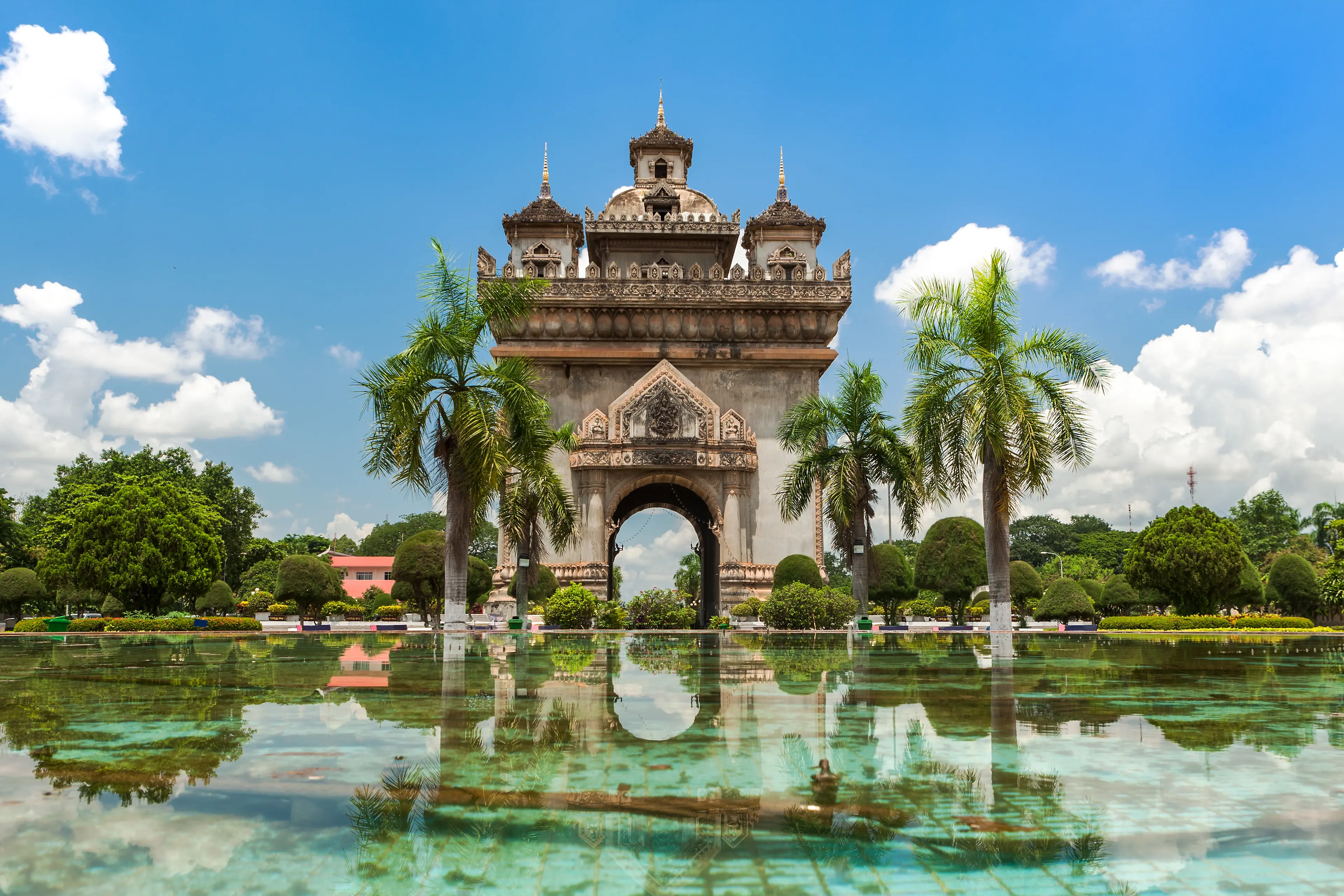
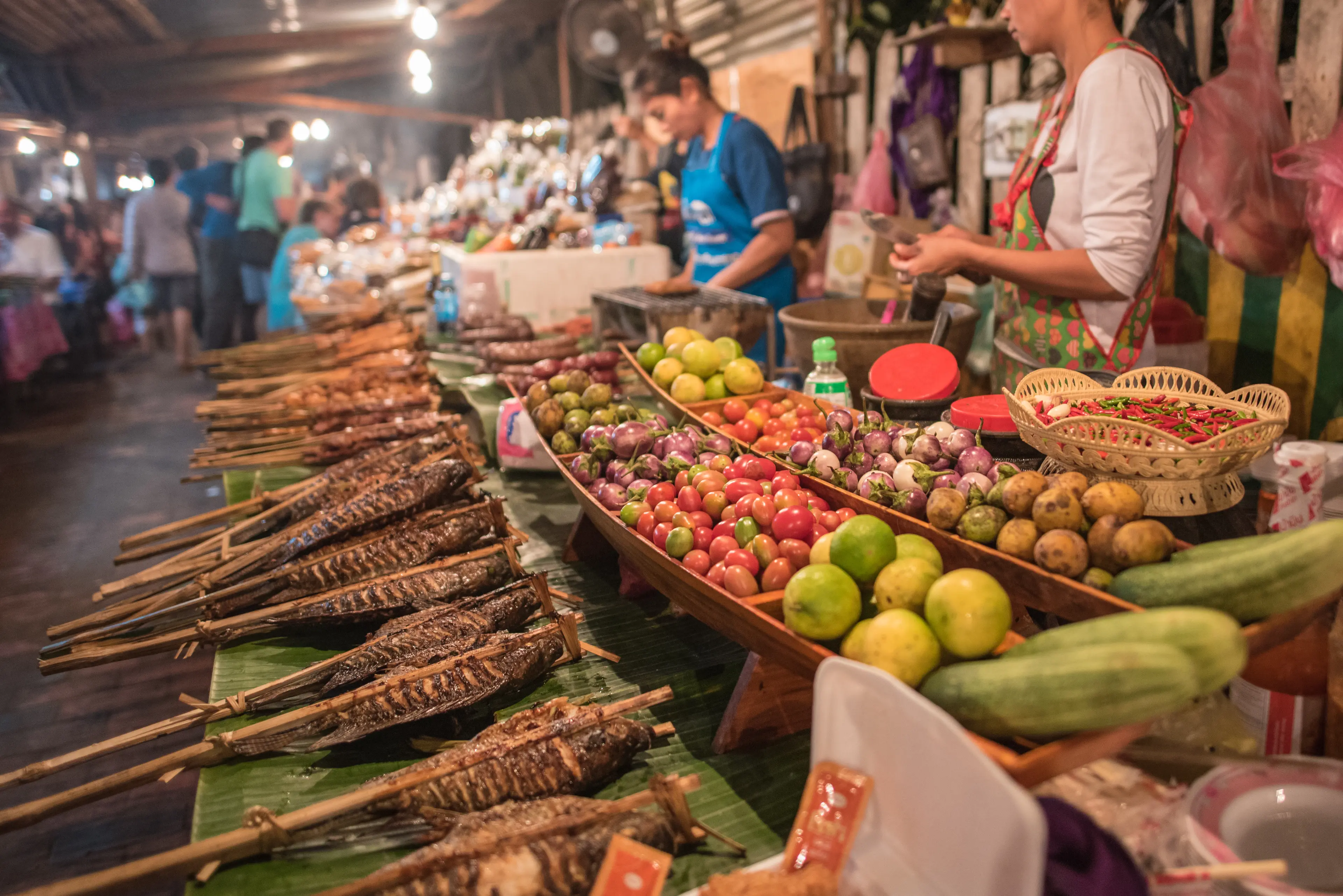
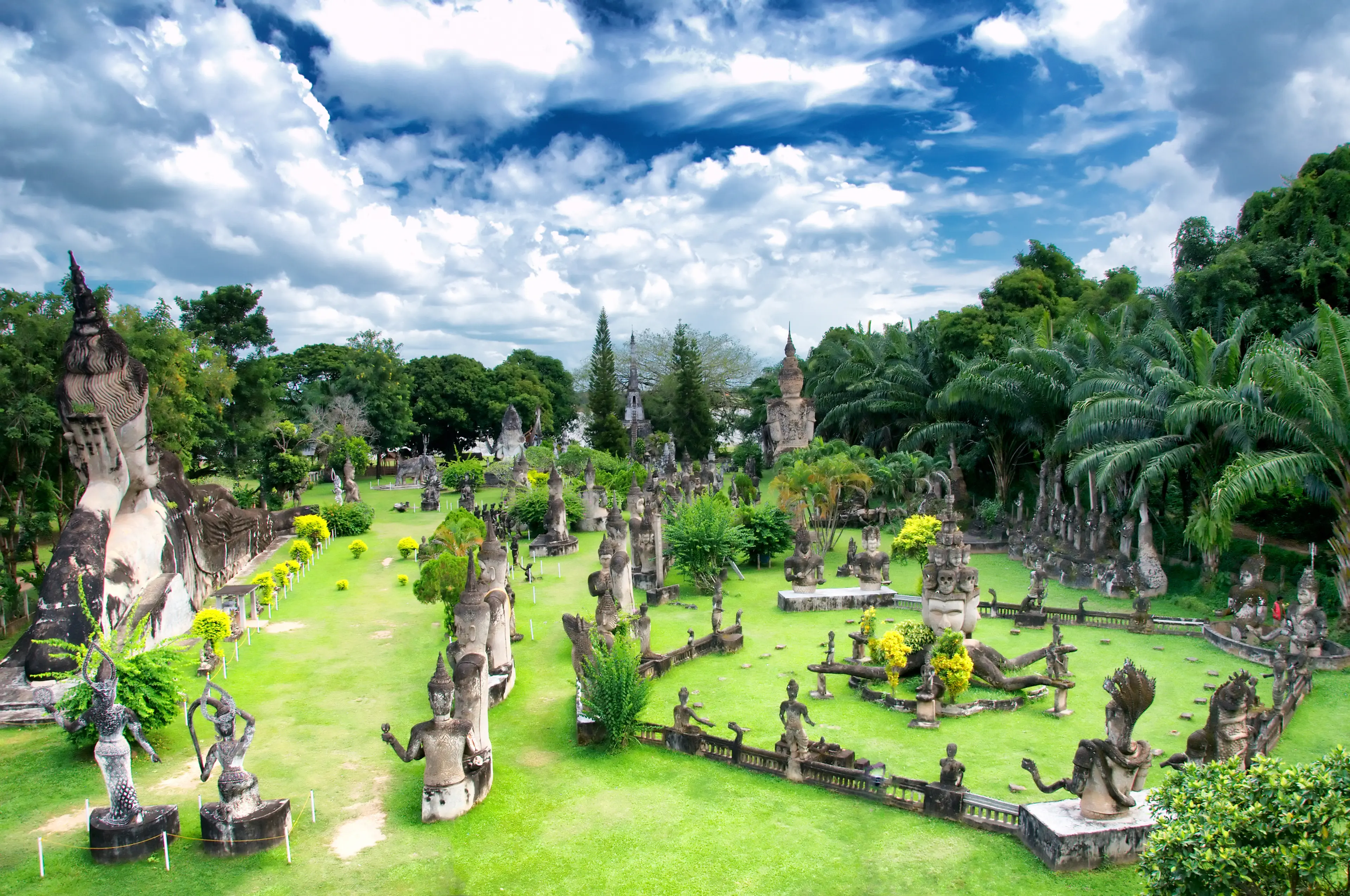
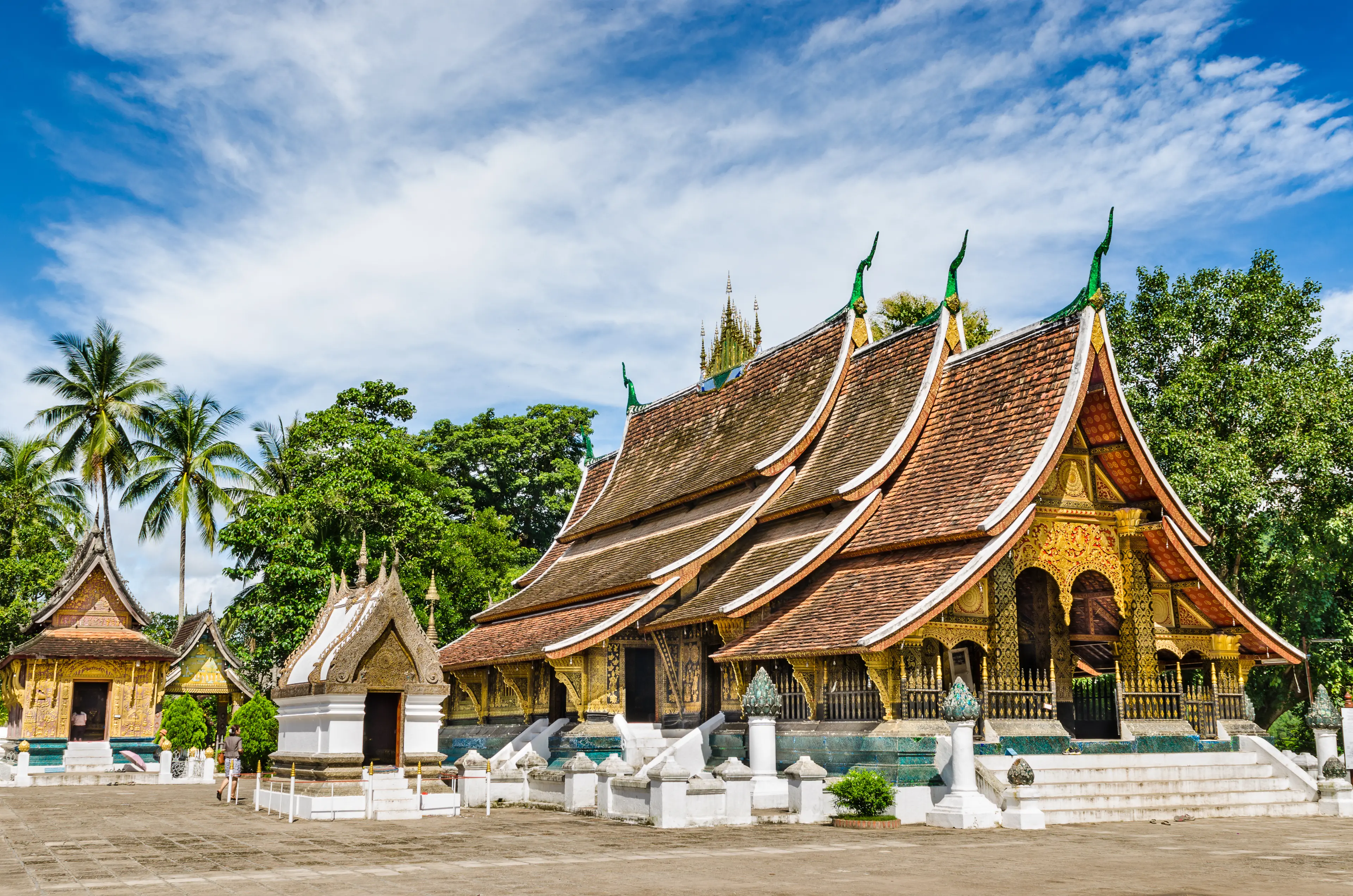
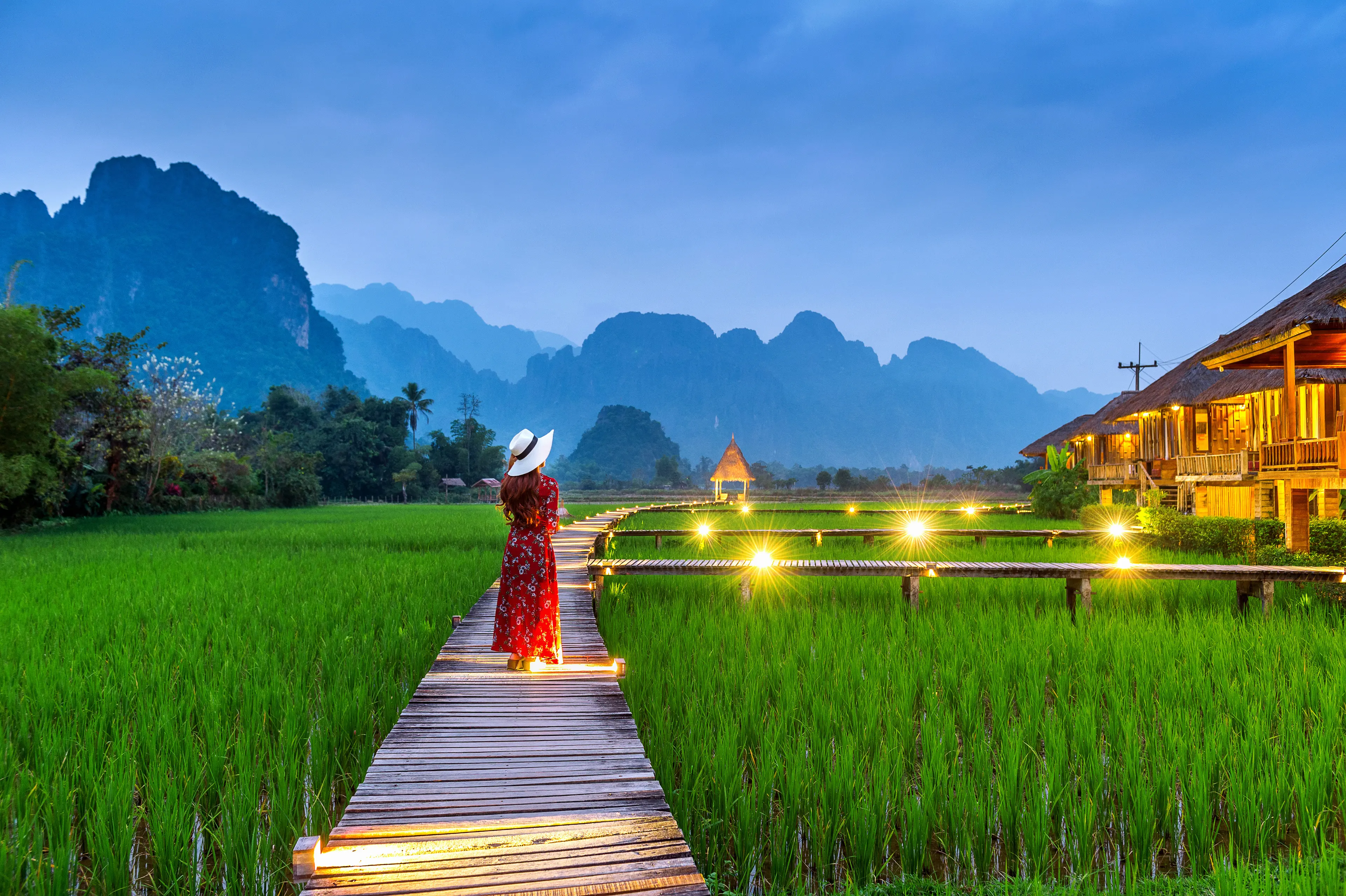
About Laos
Discover the untouched beauty of Laos, a hidden gem in Southeast Asia. Experience the tranquility of this landlocked country, rich in cultural heritage and natural splendor. Visit the UNESCO World Heritage city of Luang Prabang, where ancient temples meet French colonial architecture. Explore the capital, Vientiane, home to the iconic golden stupa, Pha That Luang. Venture into the mysterious Plain of Jars, or unwind by the serene Mekong River. Laos also offers an abundance of outdoor activities, from trekking in the northern highlands to exploring the vast cave networks in the south. Immerse yourself in the local culture, savoring the unique Lao cuisine and engaging with the friendly locals. Laos is a destination that promises an unforgettable journey of exploration and discovery.
5-Day Itinerary
Day 2
Nature and Wildlife in Luang Prabang
Morning
Start your day with a visit to the Kuang Si Waterfalls. Enjoy a refreshing swim in the turquoise pools or hike up to the top for a breathtaking view.
Lunch
Have a picnic lunch by the waterfall, enjoying the natural beauty of the surroundings.
Afternoon
Post lunch, visit the nearby Bear Rescue Centre and learn about the efforts to protect and rehabilitate the endangered Asiatic Black Bear.
Dinner
Enjoy dinner at a local restaurant, trying out more Laotian cuisine.
Evening
Spend the evening exploring the local nightlife, visiting local pubs and bars.
Day 3
Historical and Cultural Experiences in Vientiane
Morning
Start your day with a visit to the Ancient Temples of Vientiane. Explore the intricate architecture and rich history of these temples.
Lunch
Enjoy a traditional Laotian lunch at a local eatery. Try out the local delicacies like sticky rice, Laap, and Tam Mak Hoong.
Afternoon
Post lunch, visit the COPE Visitor Centre, which provides insight into the impact of unexploded ordnance (UXO) on the people of Laos.
Dinner
Have dinner at a local restaurant, trying out more Laotian cuisine.
Evening
End your day with a leisurely stroll around the night market, where you can shop for local handicrafts and souvenirs.
Day 4
Relaxation and River Cruise in Vientiane
Morning
Start your day with a visit to the Buddha Park, home to over 200 statues of Buddha and Hindu deities.
Lunch
Enjoy a picnic lunch in the park, surrounded by the serene beauty of the surroundings.
Afternoon
Post lunch, take a boat ride on the Mekong River and enjoy the serene surroundings.
Dinner
Enjoy dinner at a local restaurant, trying out more Laotian cuisine.
Evening
Spend the evening exploring the local nightlife, visiting local pubs and bars.
Day 5
National Monuments and Museums in Vientiane
Morning
Start your day with a visit to the Pha That Luang, a gold-covered large Buddhist stupa and the most important national monument in Laos.
Lunch
Enjoy a traditional Laotian lunch at a local eatery. Try out the local delicacies like sticky rice, Laap, and Tam Mak Hoong.
Afternoon
Post lunch, visit the Lao National Museum, which provides a comprehensive overview of the country's history and people.
Dinner
Have dinner at a local restaurant, trying out more Laotian cuisine.
Evening
End your day with a leisurely stroll around the night market, where you can shop for local handicrafts and souvenirs.
Attractions in Itinerary (11)
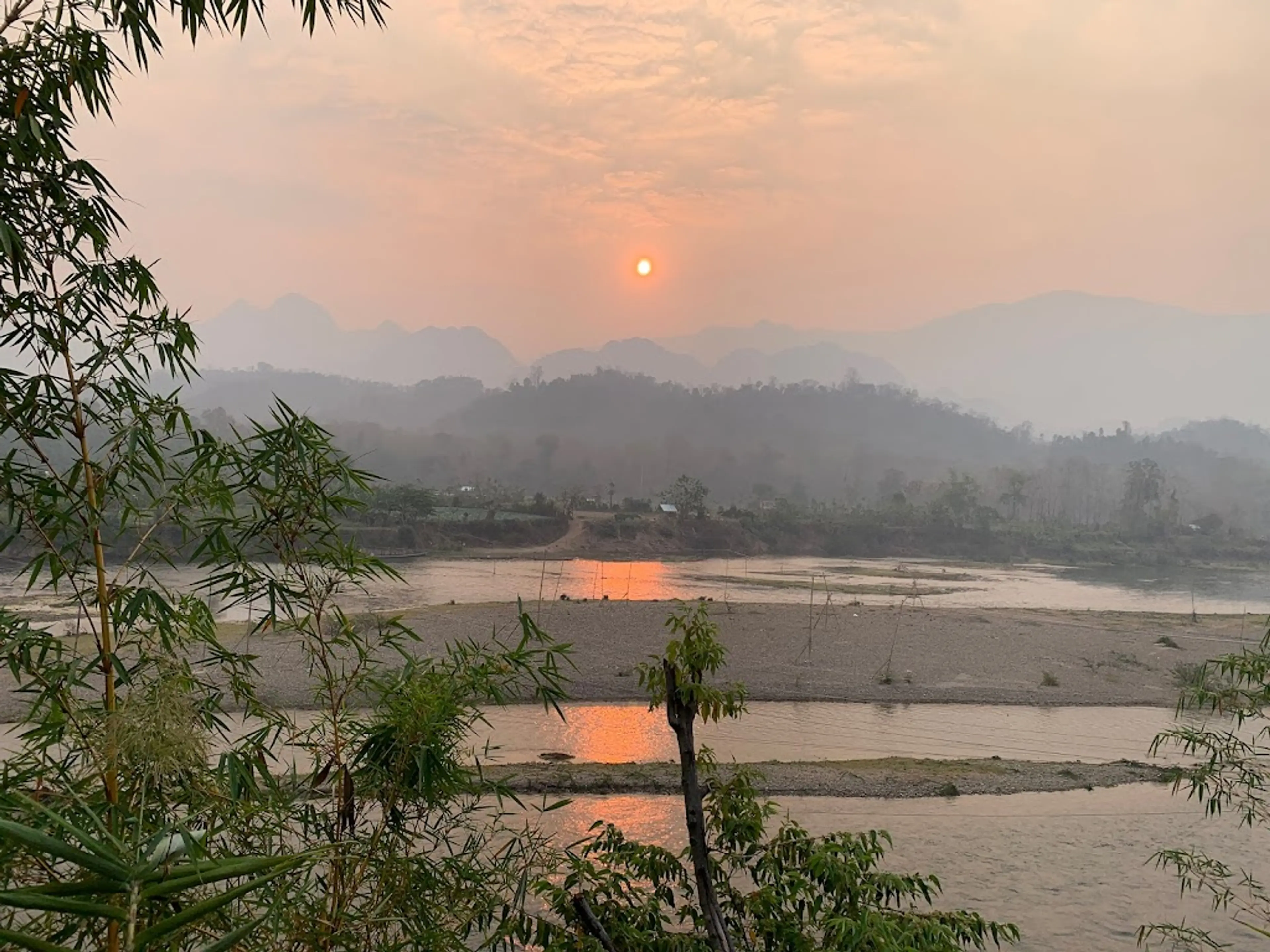
1Luang Prabang
A UNESCO World Heritage site, Luang Prabang is known for its well-preserved architectural, religious and cultural heritage, a blend of the rural and urban developments over several centuries including the French colonial influences during the 19th and 20th centuries.
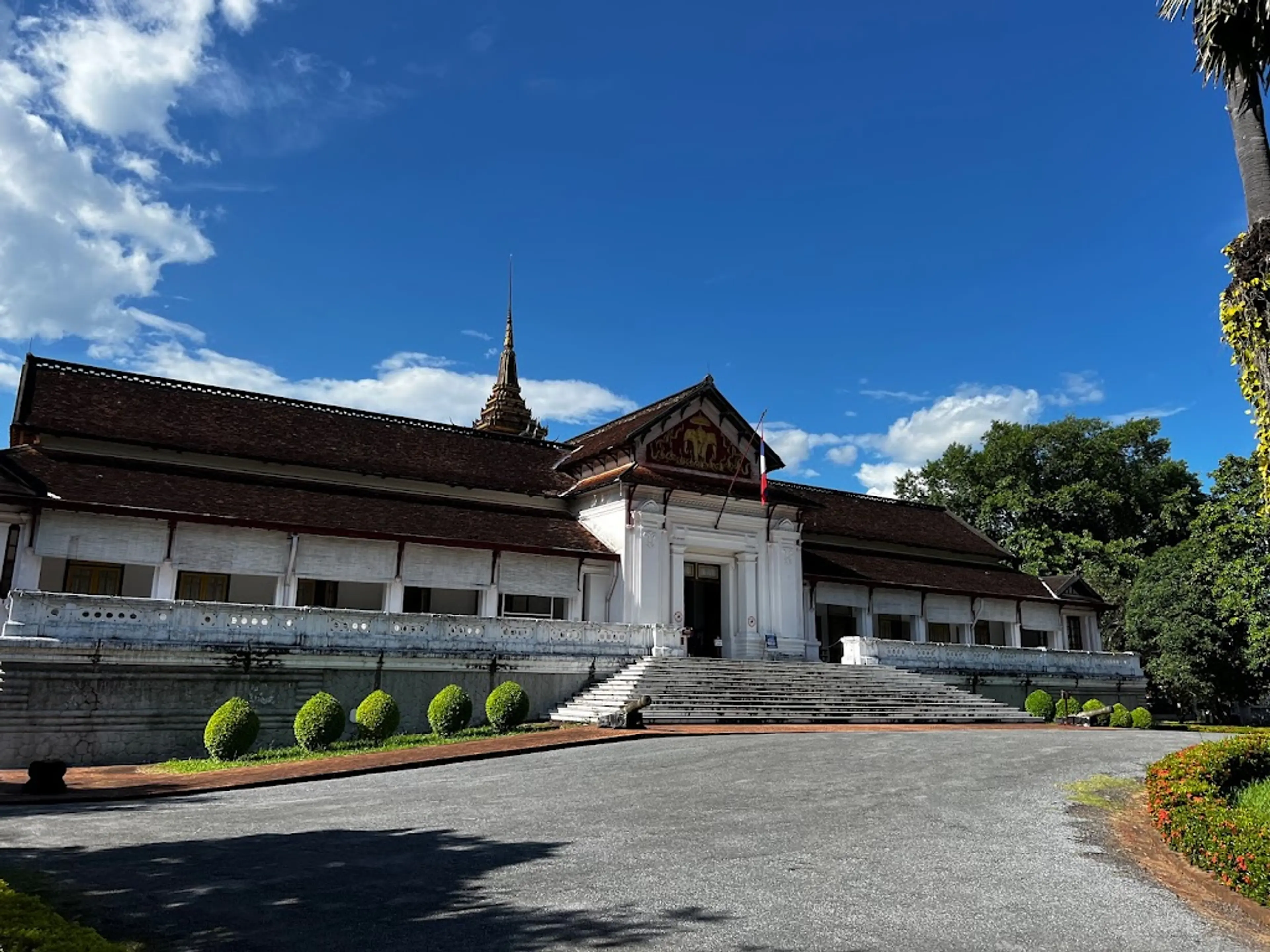
2Royal Palace Museum
A museum in Luang Prabang, Laos. It was originally a royal palace of the Laos Kingdom.
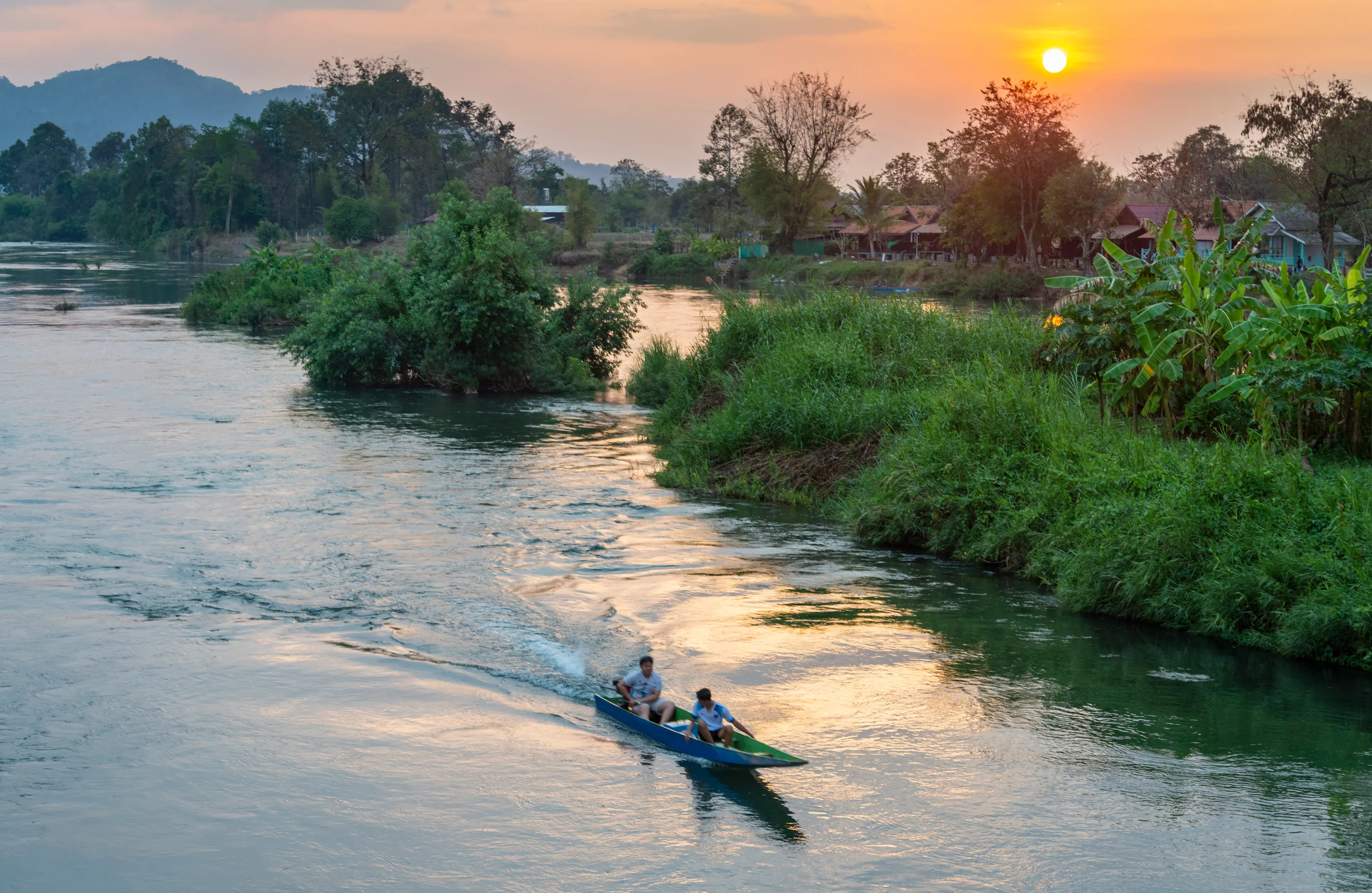
3Mekong River
The Mekong River is the world's twelfth longest river and the seventh longest in Asia. It is a major trade route, linking China with Southeast Asia. Boat tours along the river are popular among tourists, offering breathtaking views of the natural scenery and wildlife.
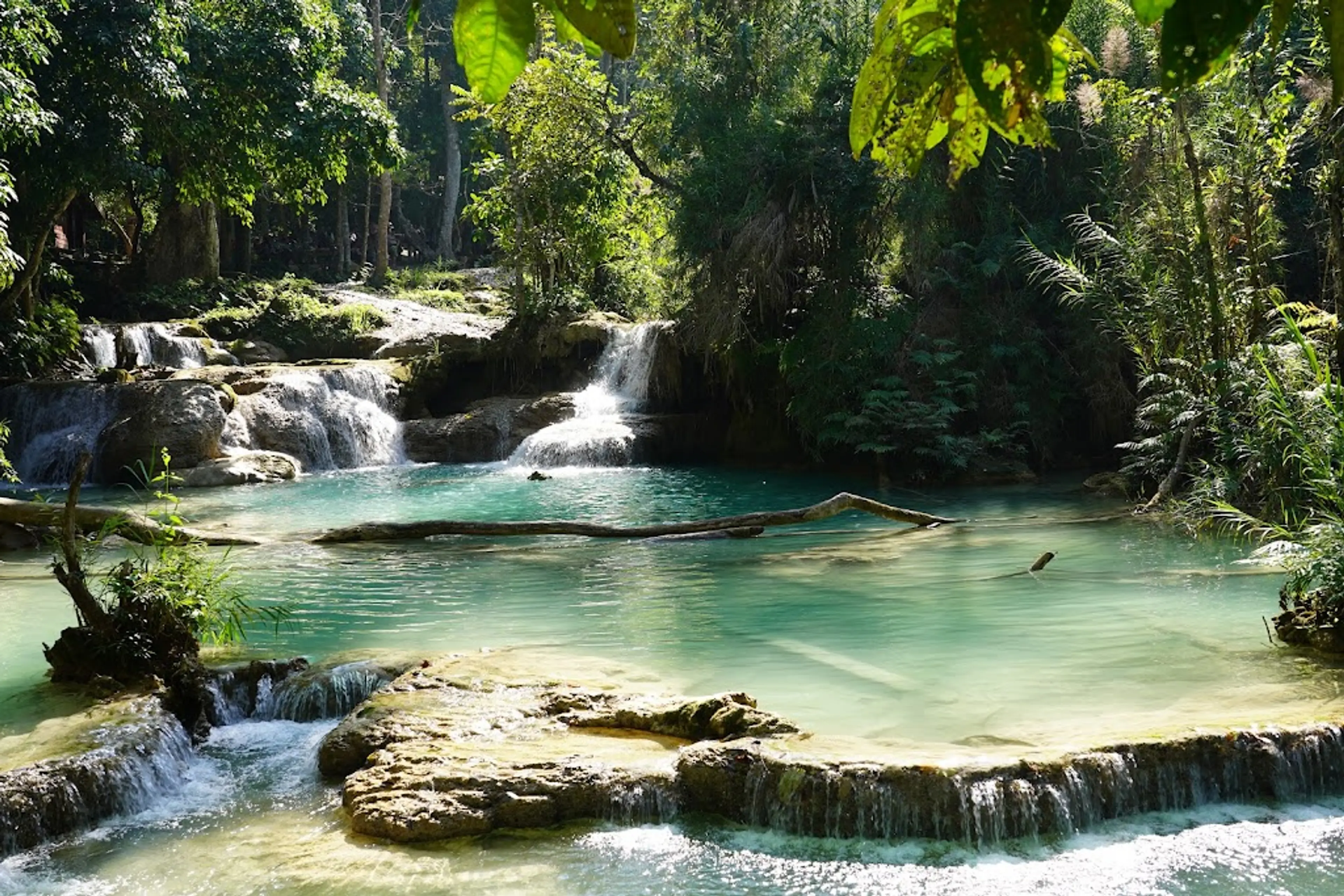
4Kuang Si Waterfalls
A three-tier waterfall about 29 kilometres (18 mi) south of Luang Prabang. These waterfalls are a favourite side trip for tourists in Luang Prabang.
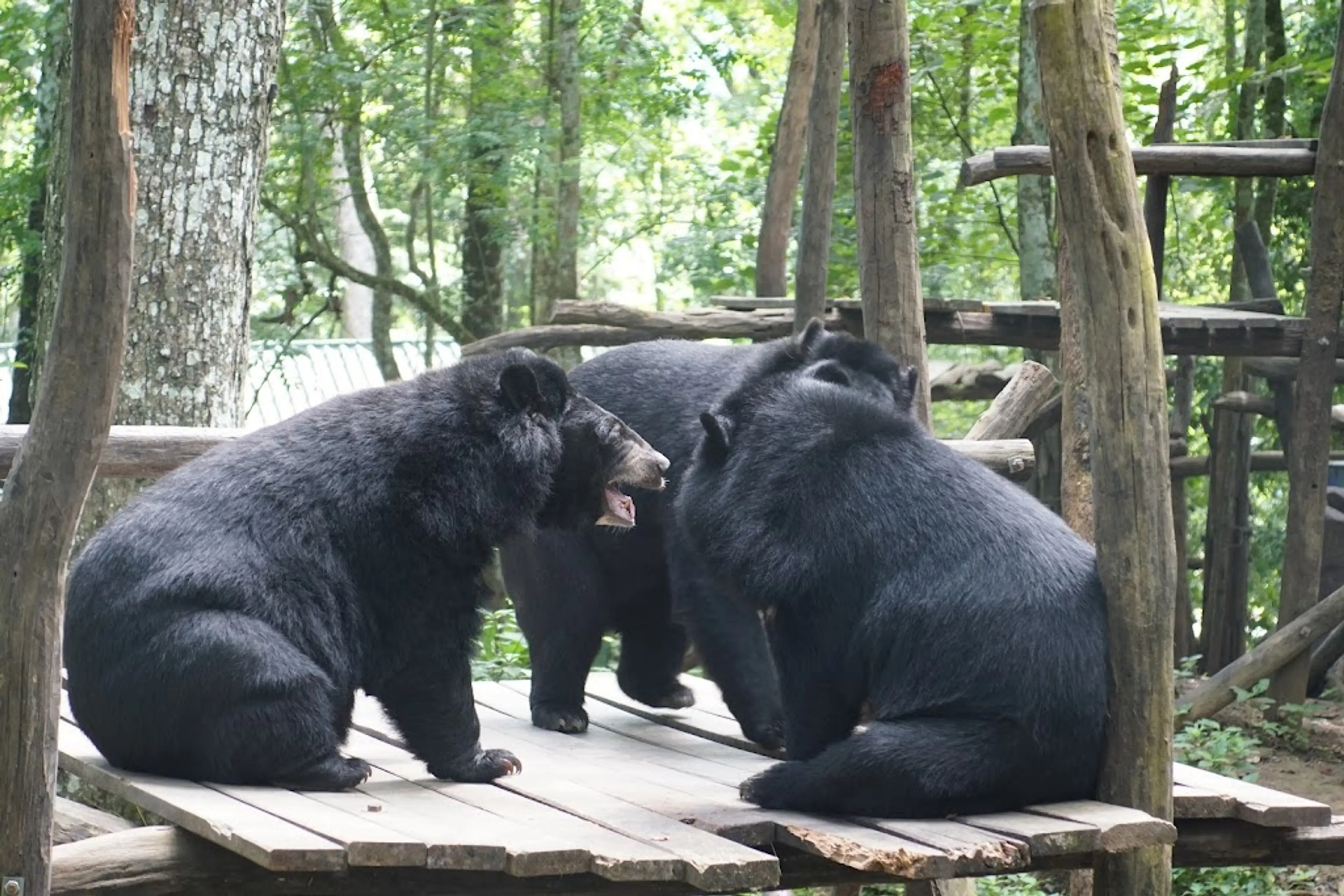
5Bear Rescue Centre
Visit the Bear Rescue Centre to learn about the conservation efforts for the endangered Asiatic black bear. The centre provides a sanctuary for bears rescued from illegal wildlife trade.
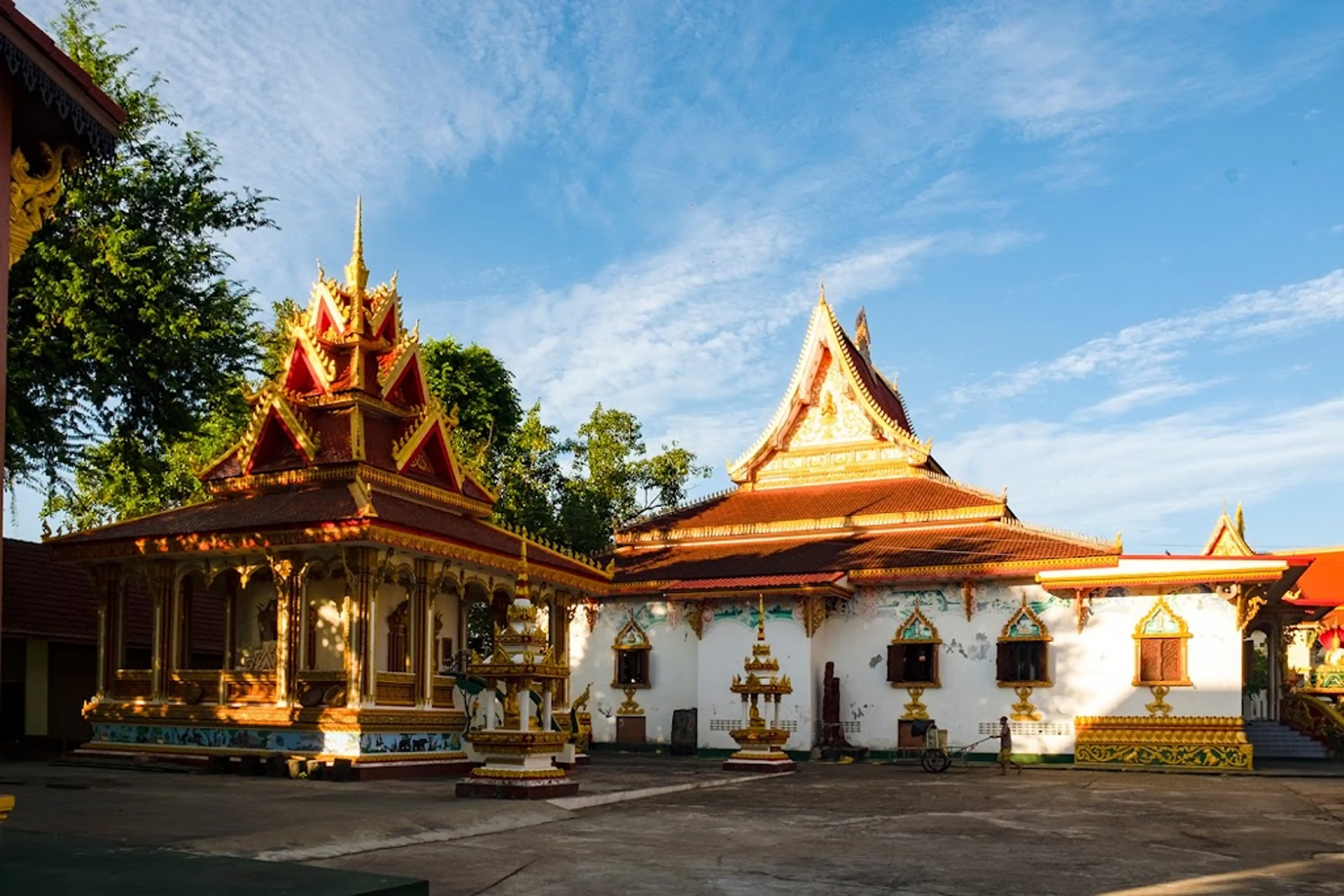
6Ancient Temples of Vientiane
These are ancient Buddhist temples located in Vientiane, showcasing the rich history and spiritual traditions of Laos.
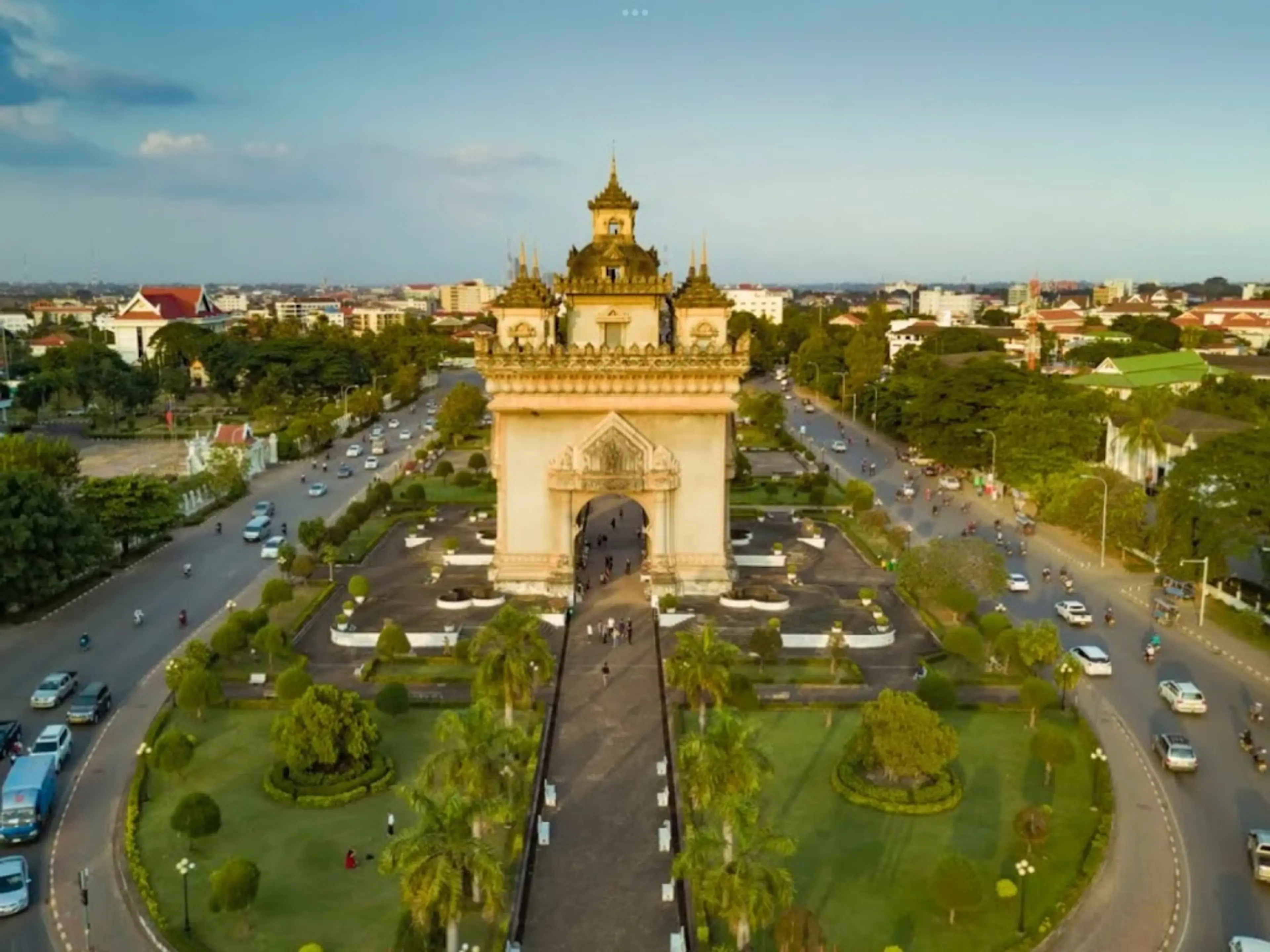
7Vientiane
Vientiane is the capital city of Laos, known for its French colonial architecture and Buddhist temples.
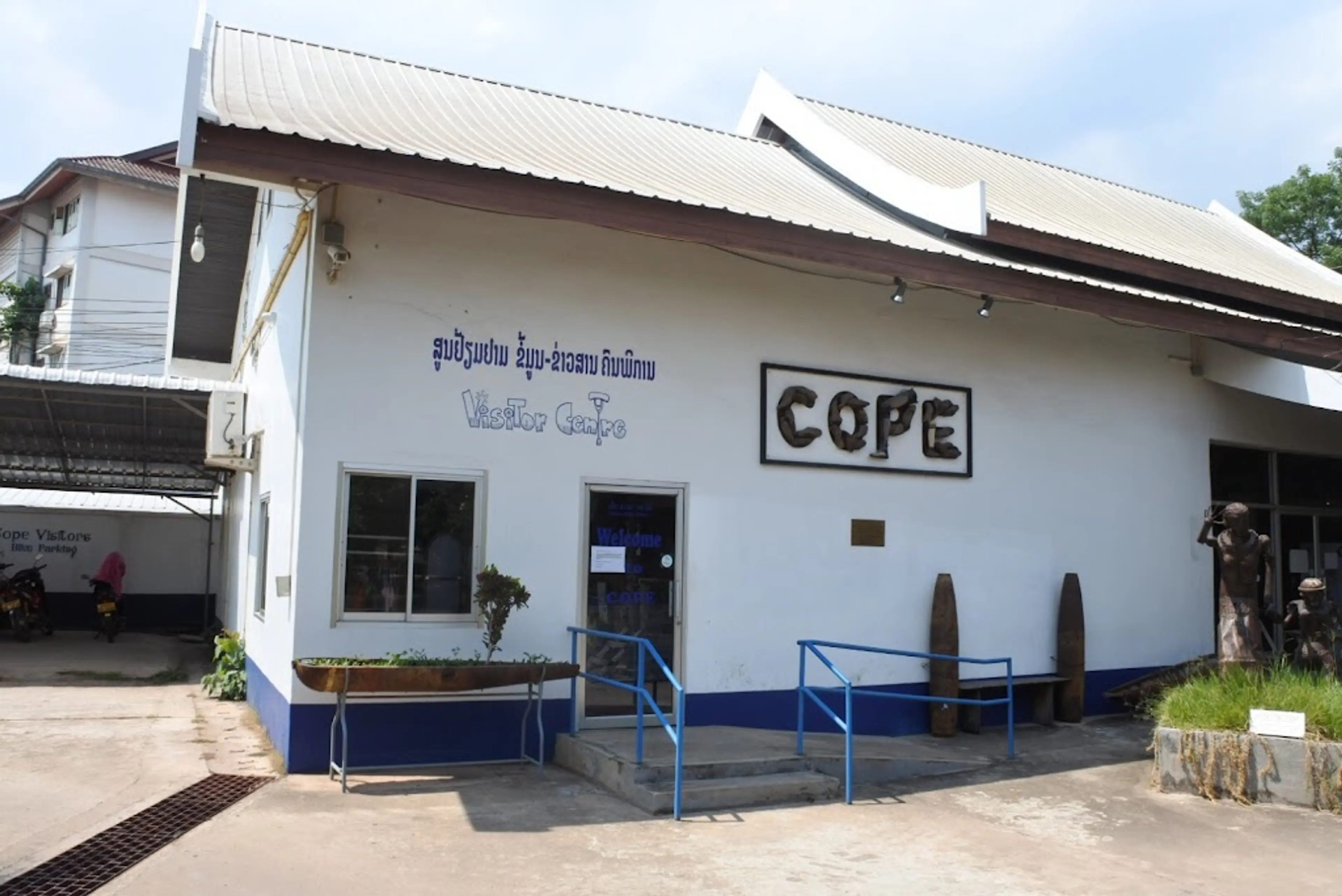
8COPE Visitor Centre
This museum provides insight into the impact of unexploded ordnance (UXO) in Laos and the work of the COPE organization.
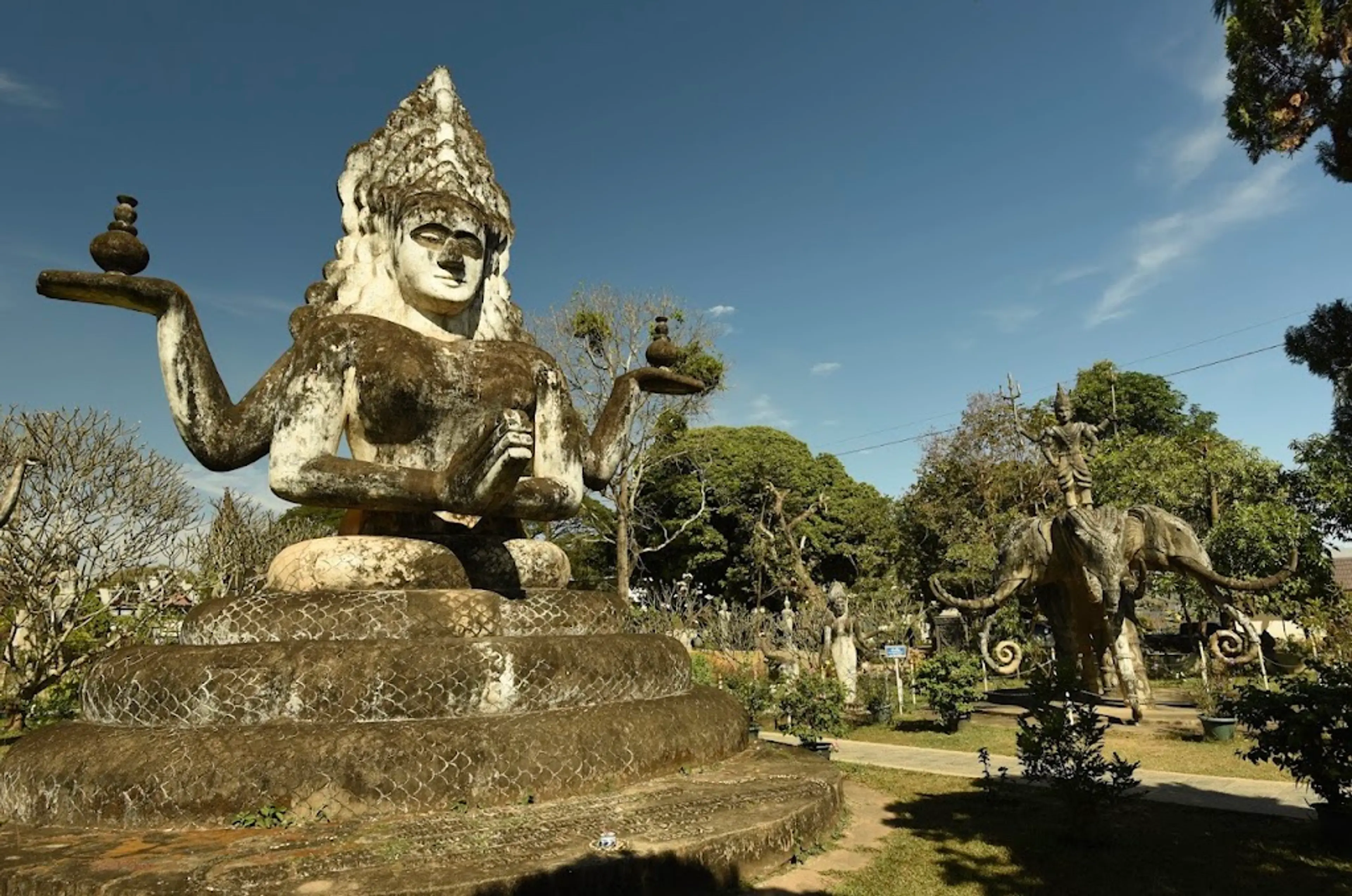
9Buddha Park
This is a sculpture park located 25 km southeast from Vientiane, containing over 200 Hindu and Buddhist statues.
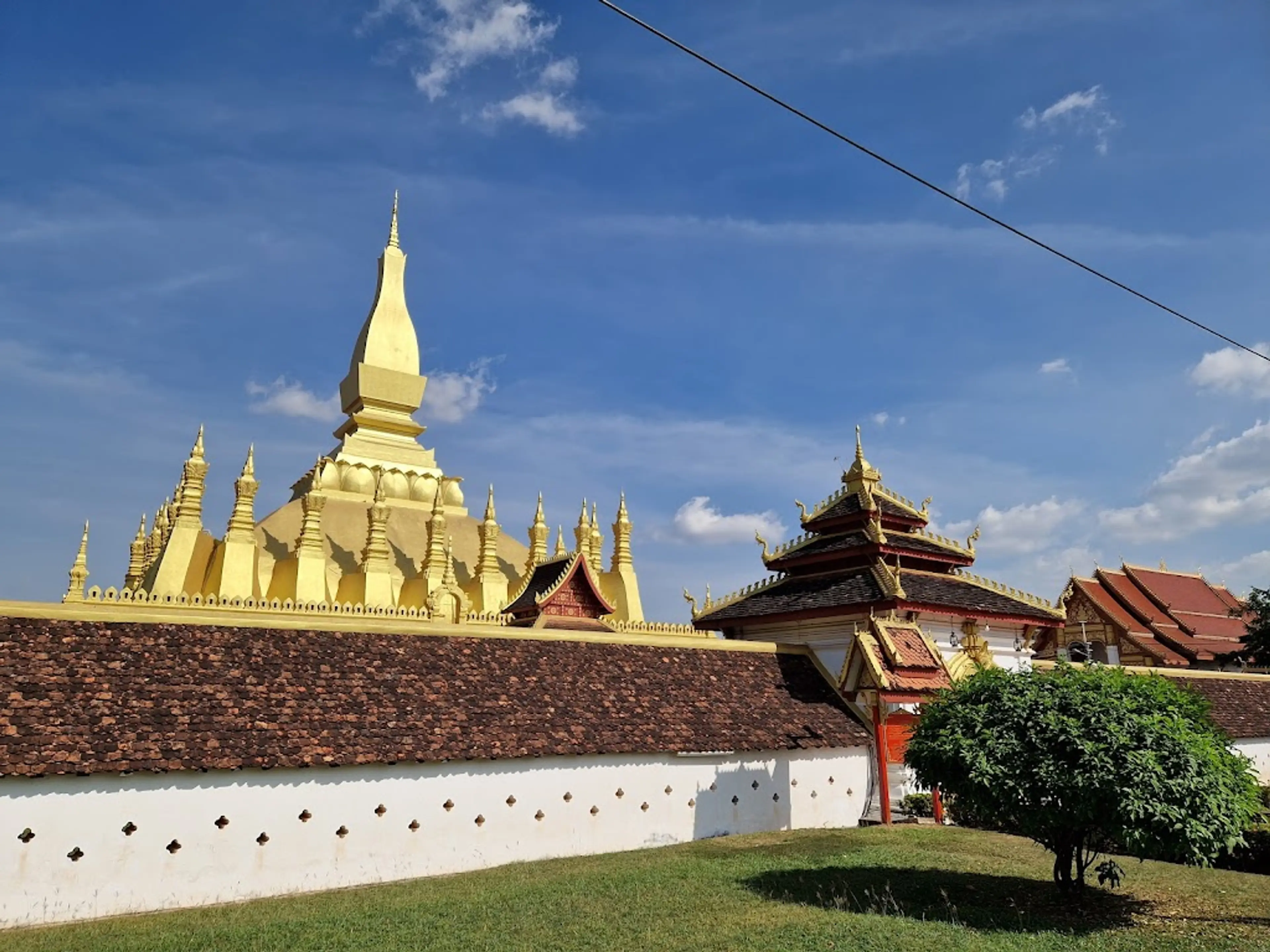
10Pha That Luang
This is a gold-covered large Buddhist stupa in the centre of Vientiane, Laos and is considered a national symbol.
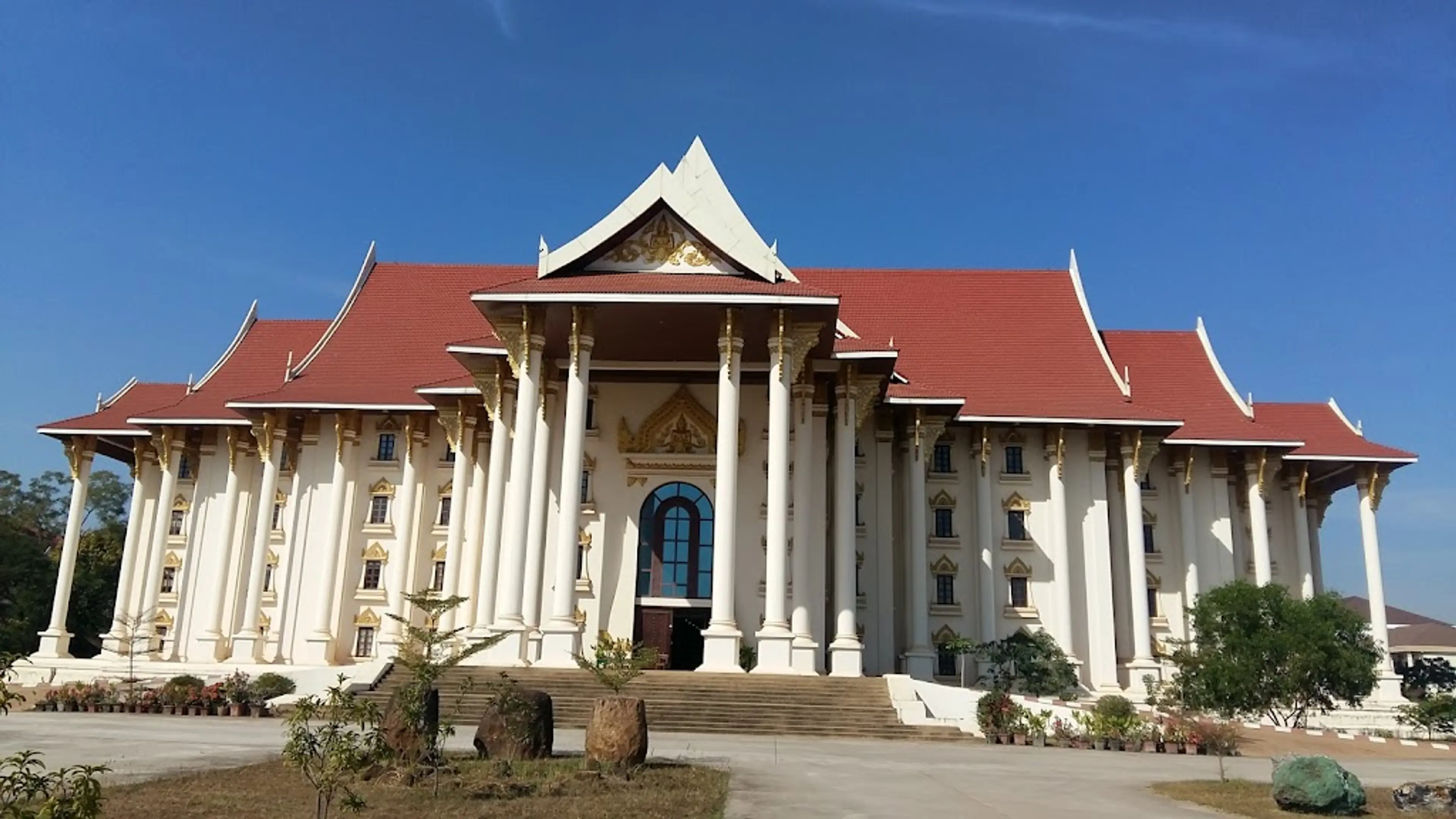
11Lao National Museum
This museum contains a comprehensive collection of artifacts reflecting the richness of Lao culture and history.
Local Food and Drinks (12)
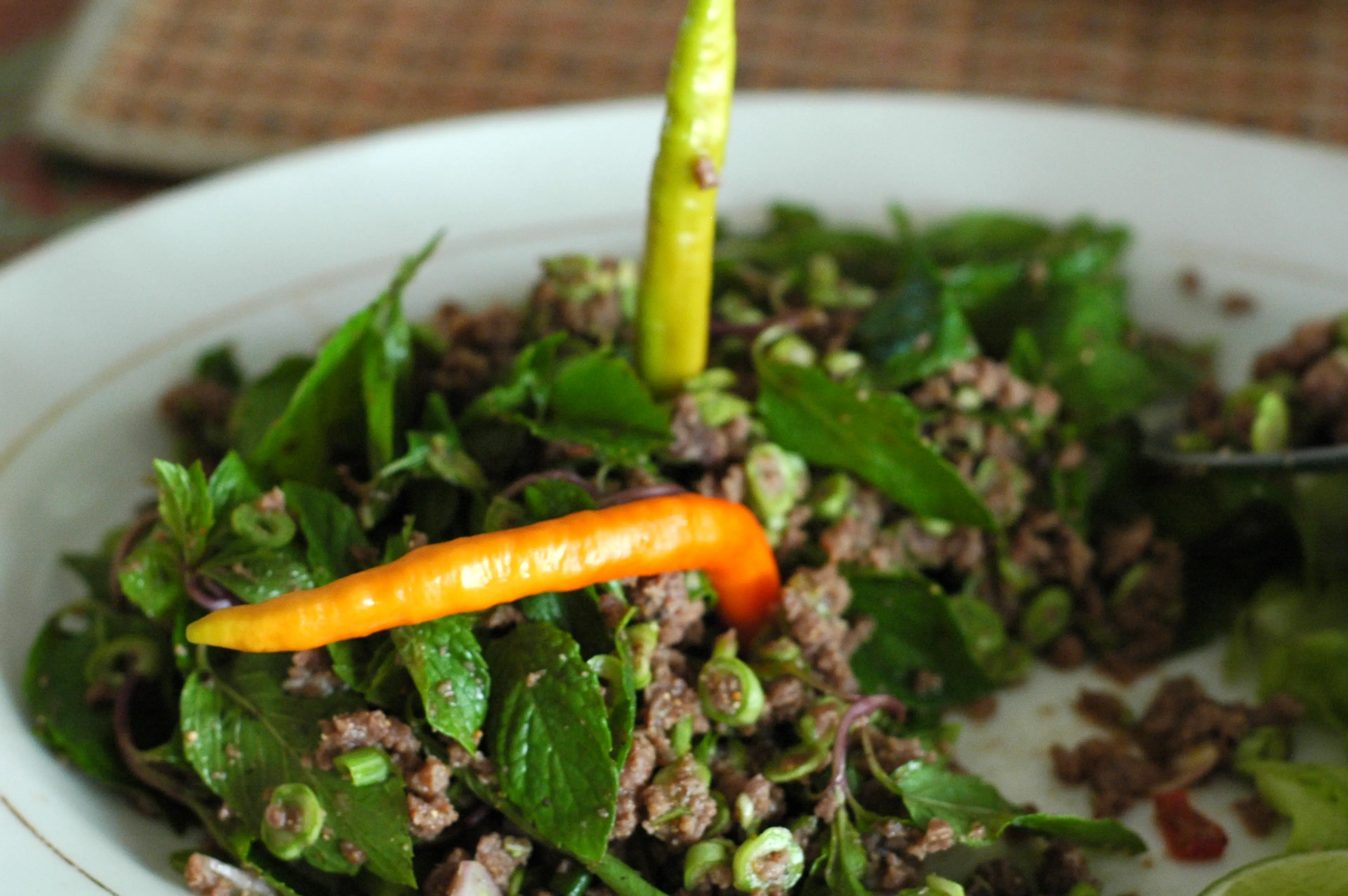
Laap
Laap is a traditional Lao minced meat salad, often made with chicken, beef, duck, fish, pork or mushrooms. It's considered the national dish of Laos and is a must-try for any food lover visiting the country.
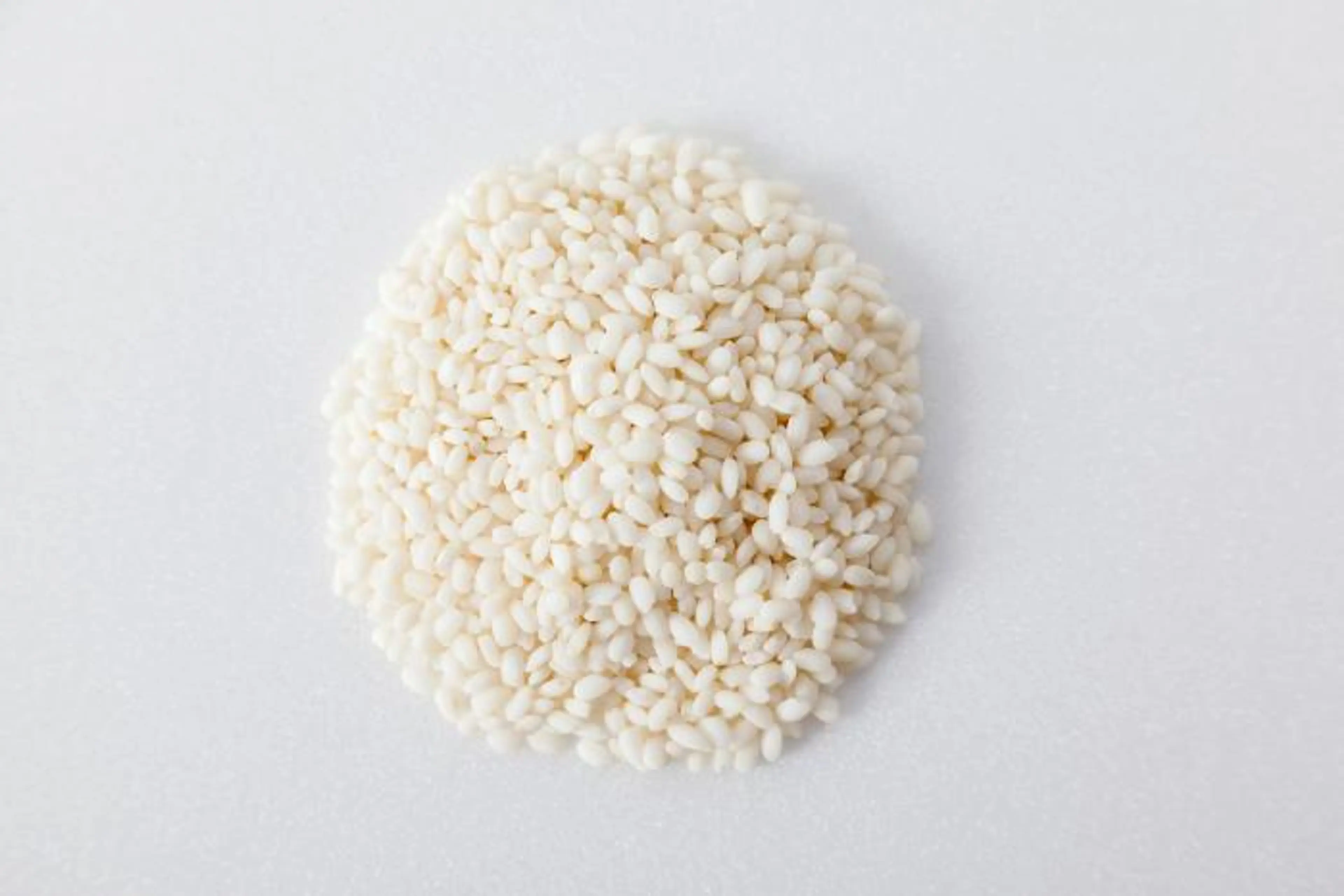
Sticky Rice
Sticky rice, or 'Khao Niew', is a staple food in Laos and is often served in a small woven basket. It's eaten with most meals and is a key part of Laotian food culture.
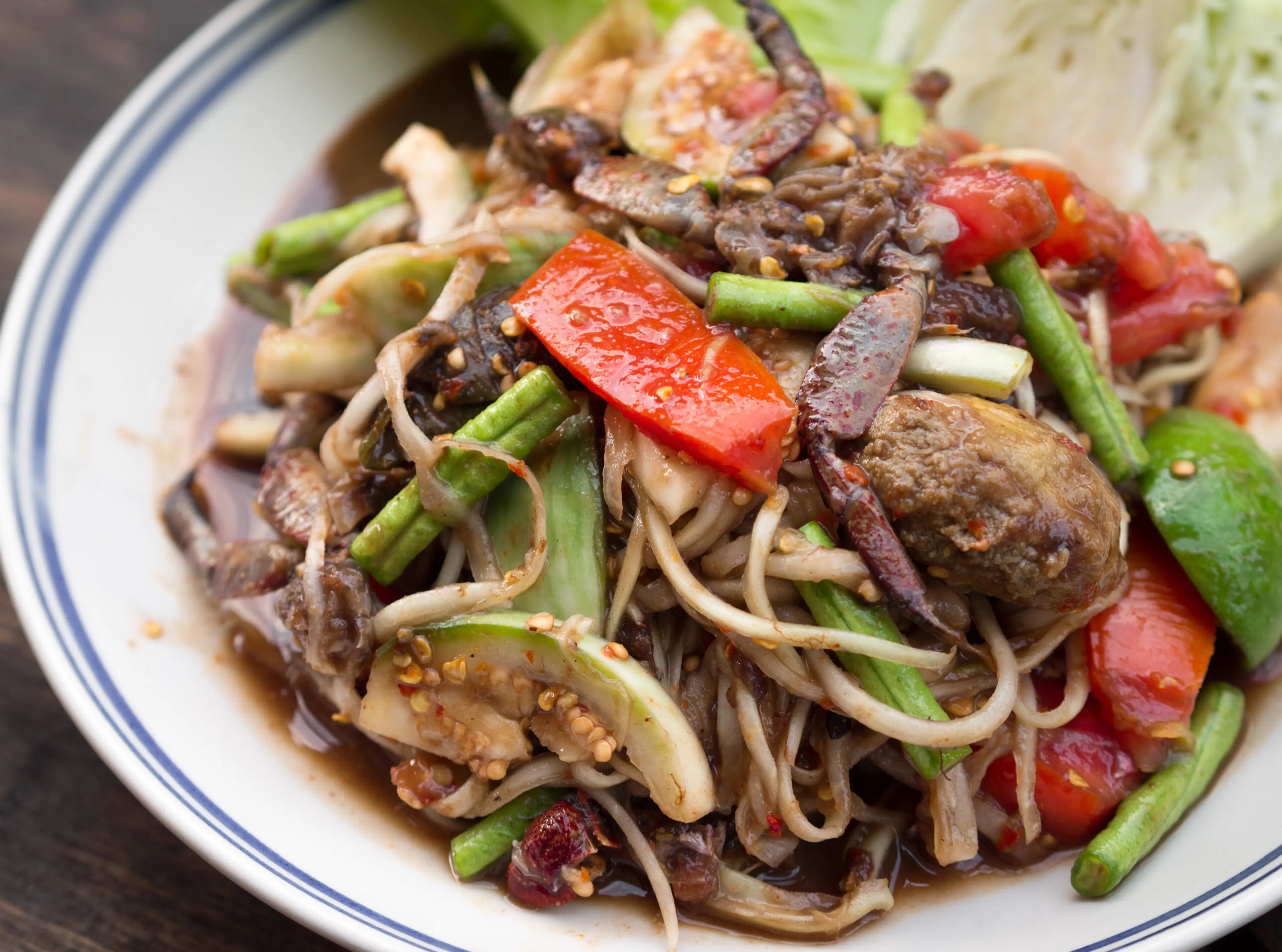
Tam Mak Hoong
Also known as Papaya Salad, Tam Mak Hoong is a spicy salad made from shredded unripe papaya. It's a popular street food in Laos and is known for its tangy and spicy flavors.
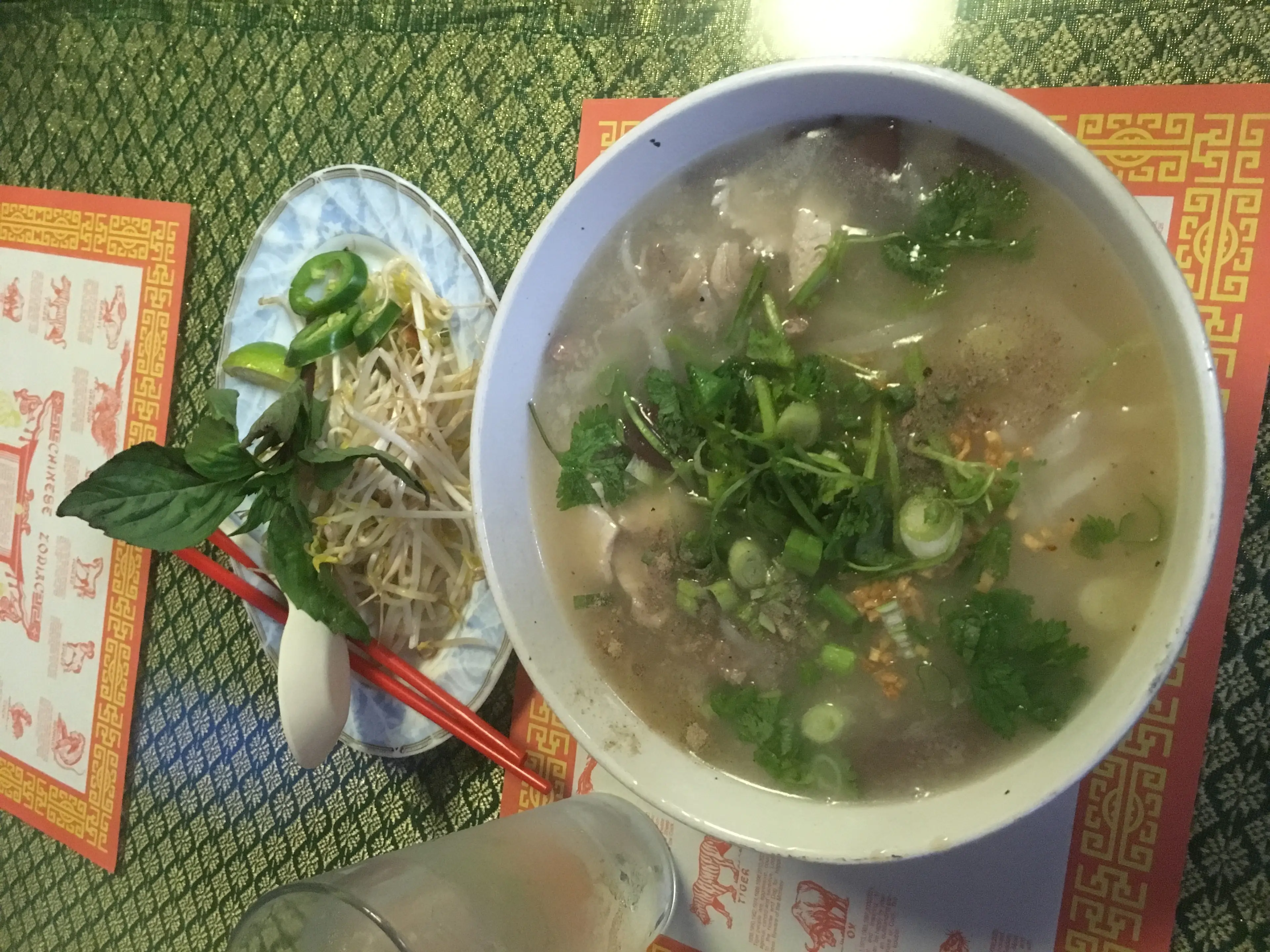
Khao Piak Sen
Khao Piak Sen is a traditional Lao noodle soup made with thick rice noodles, chicken or pork, and lots of herbs. It's a common breakfast dish in Laos.
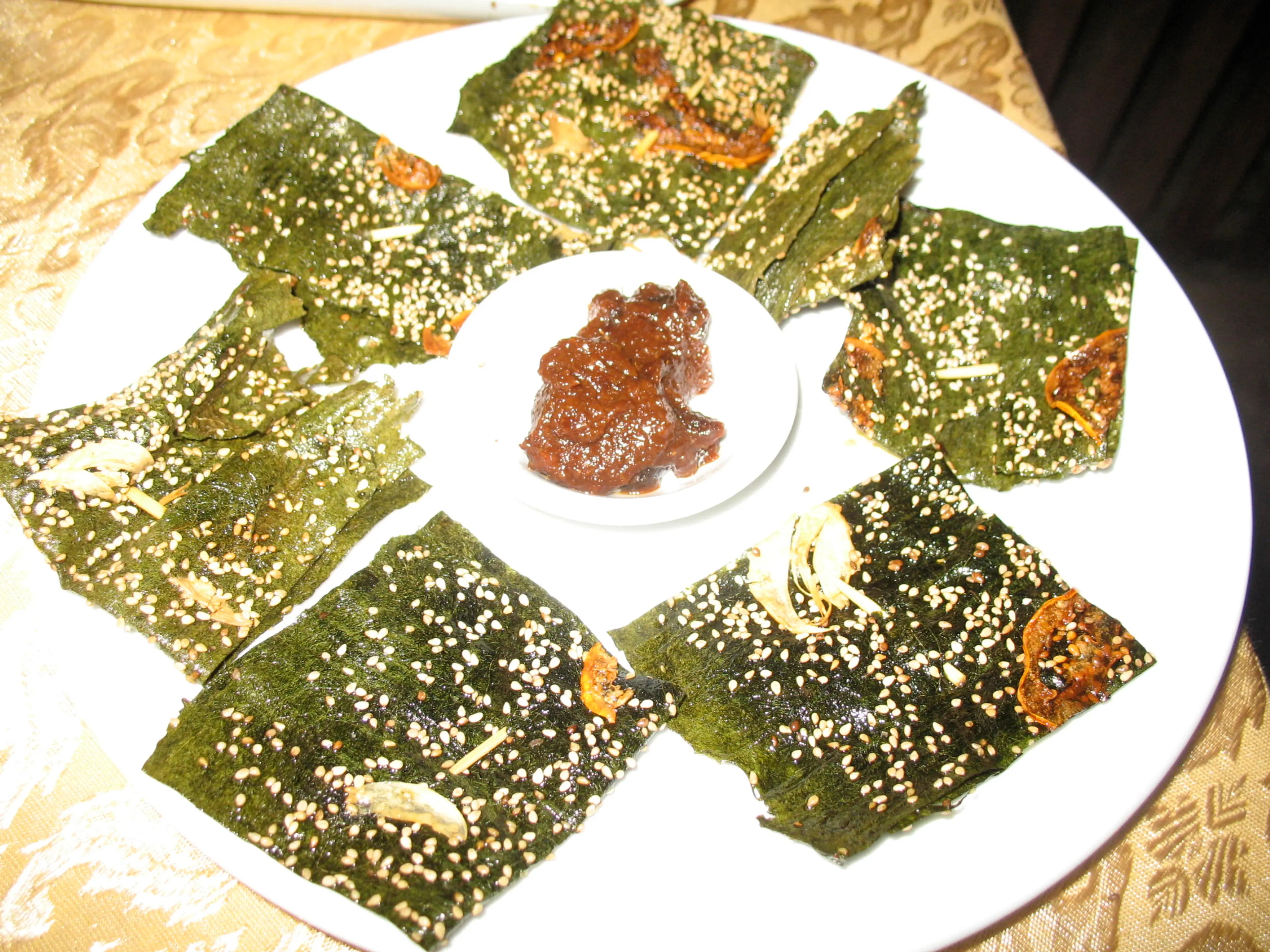
Kaipen
Kaipen is a popular snack in Laos made from river weed that's been dried, seasoned with sesame seeds, garlic, and other flavors, then fried until crispy.
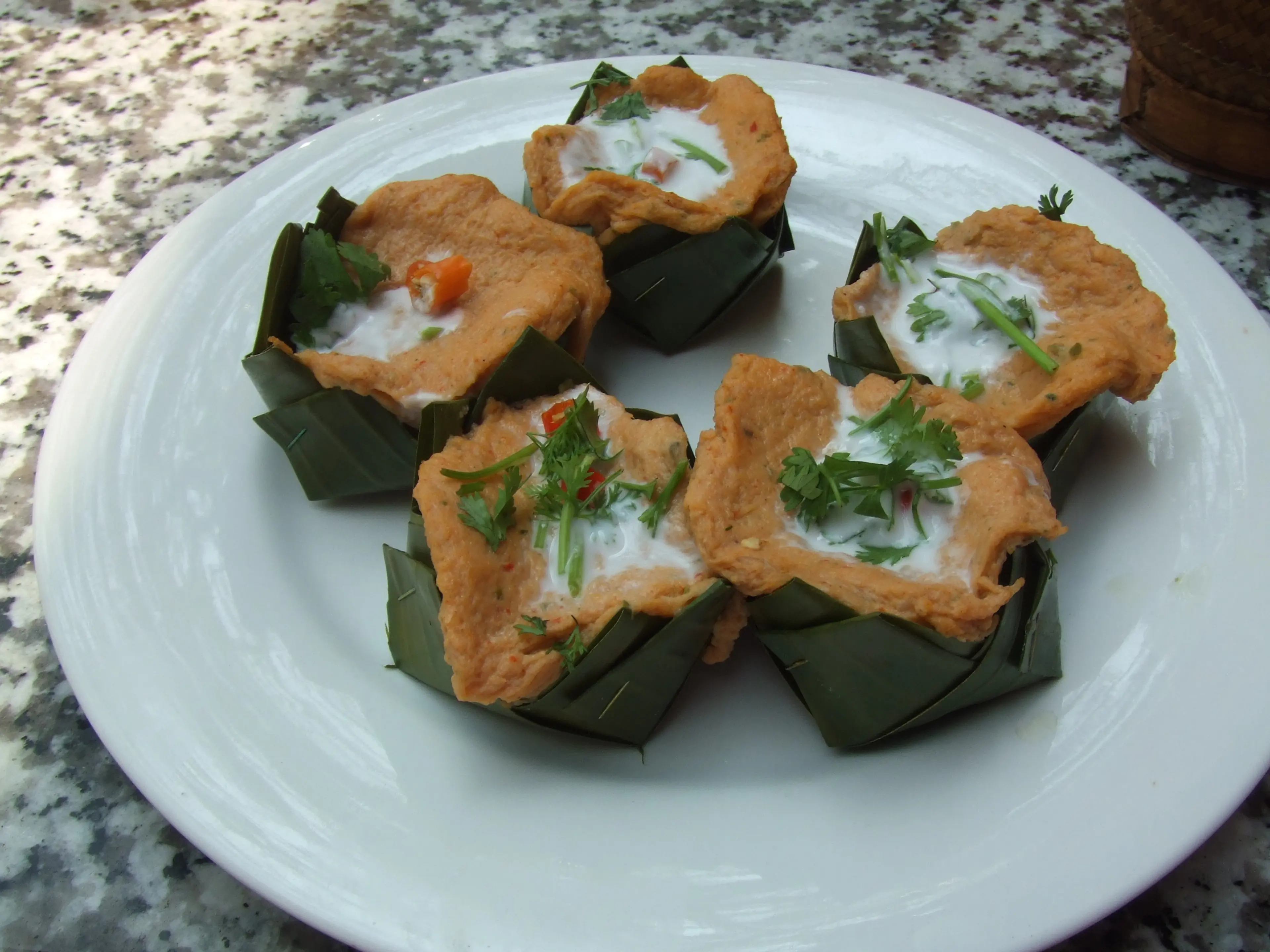
Mok Pa
Mok Pa is a traditional Lao dish where fish is steamed in banana leaves with herbs and spices. It's a popular dish in Laos and offers a unique and delicious flavor.

Khao Jee
Khao Jee is a Lao-style baguette sandwich, often filled with pate, ham, fresh vegetables, and chili sauce. It's a popular street food in Laos, influenced by French cuisine.
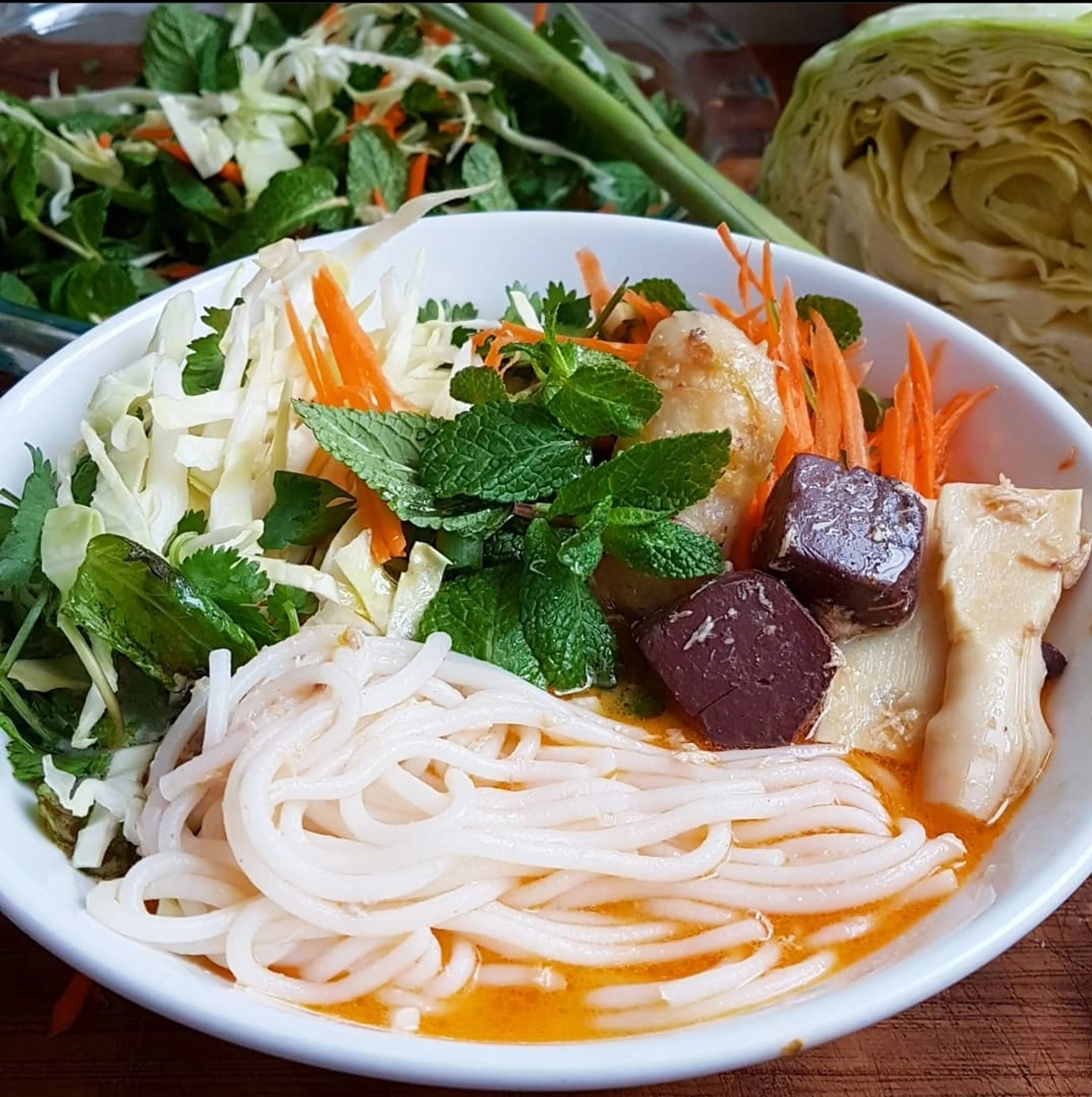
Khao Poon
Khao Poon is a spicy rice vermicelli soup that's a staple in Lao cuisine. It's often made with fish, chicken, or pork, and flavored with coconut milk and a variety of herbs.
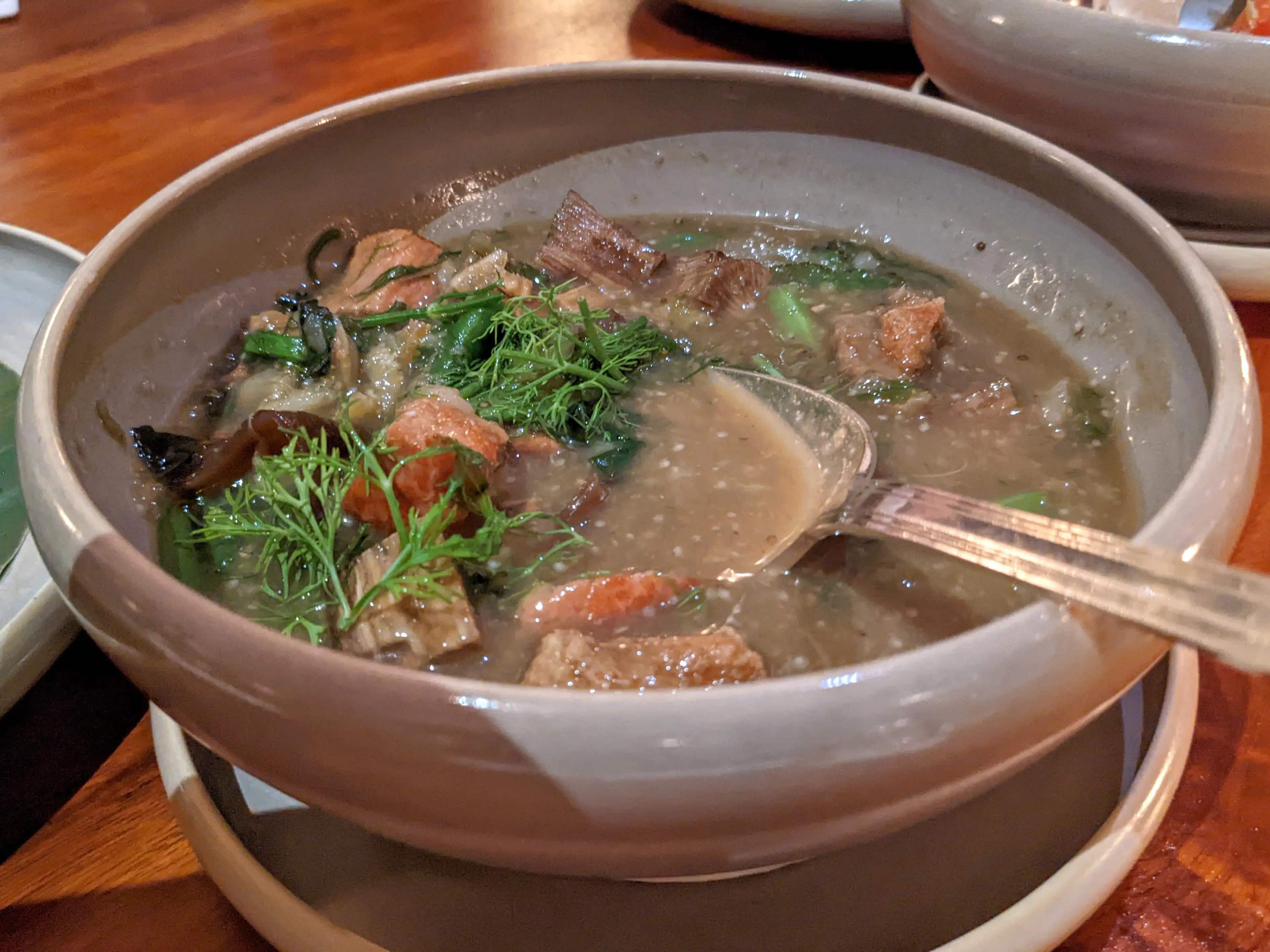
Or Lam
Or Lam is a traditional Lao stew made with meat, eggplants, gourds, beans, and dill. It's a hearty and flavorful dish that's a must-try in Laos.

Beerlao
Beerlao is the national beer of Laos and is a must-try for any beer lover. It's a lager-style beer and is often enjoyed with meals or as a refreshing drink in the hot Laotian climate.
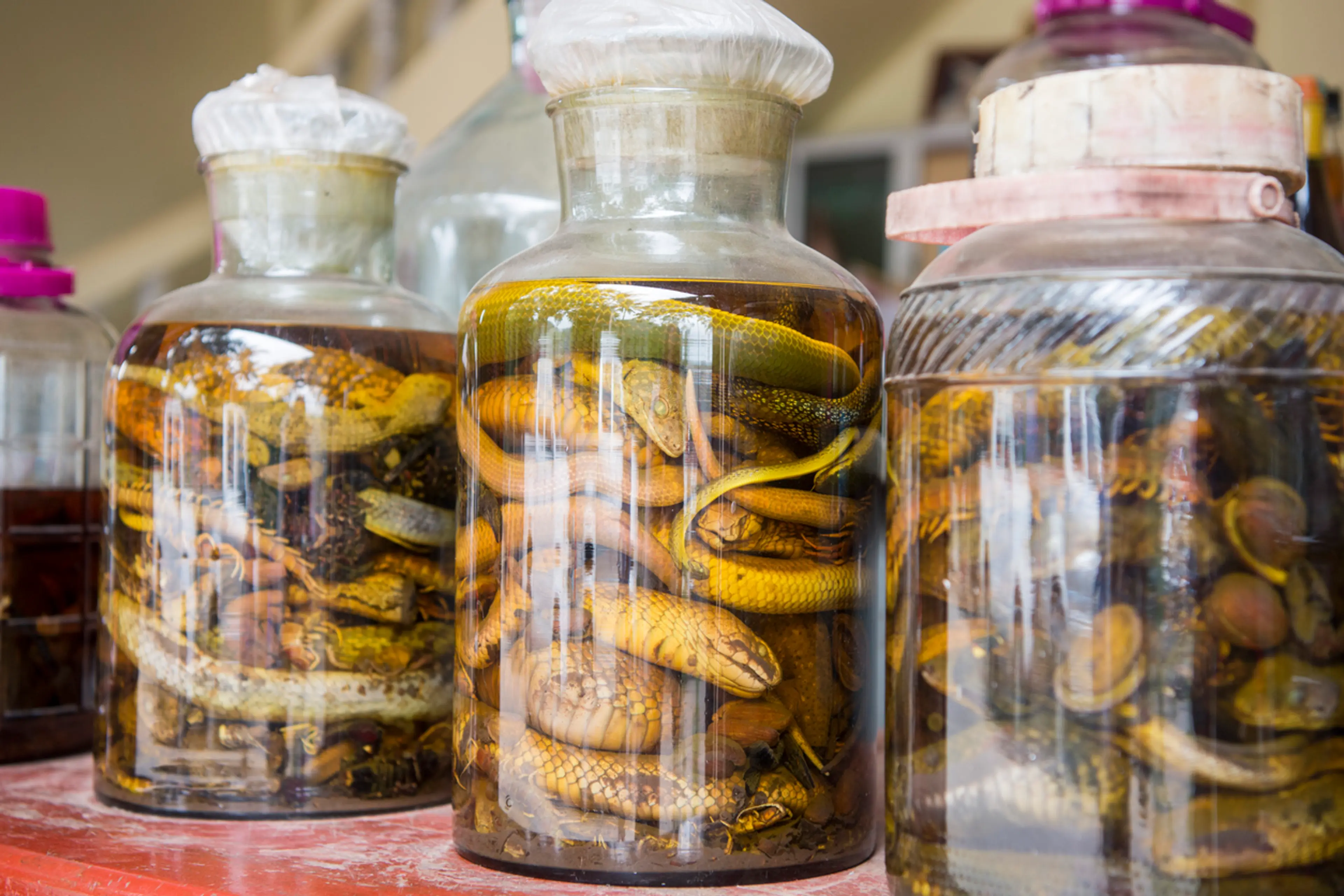
Lao-Lao
Lao-Lao is a traditional Laotian rice whiskey. It's a potent spirit that's often served in small glasses and is a popular drink in Laos.
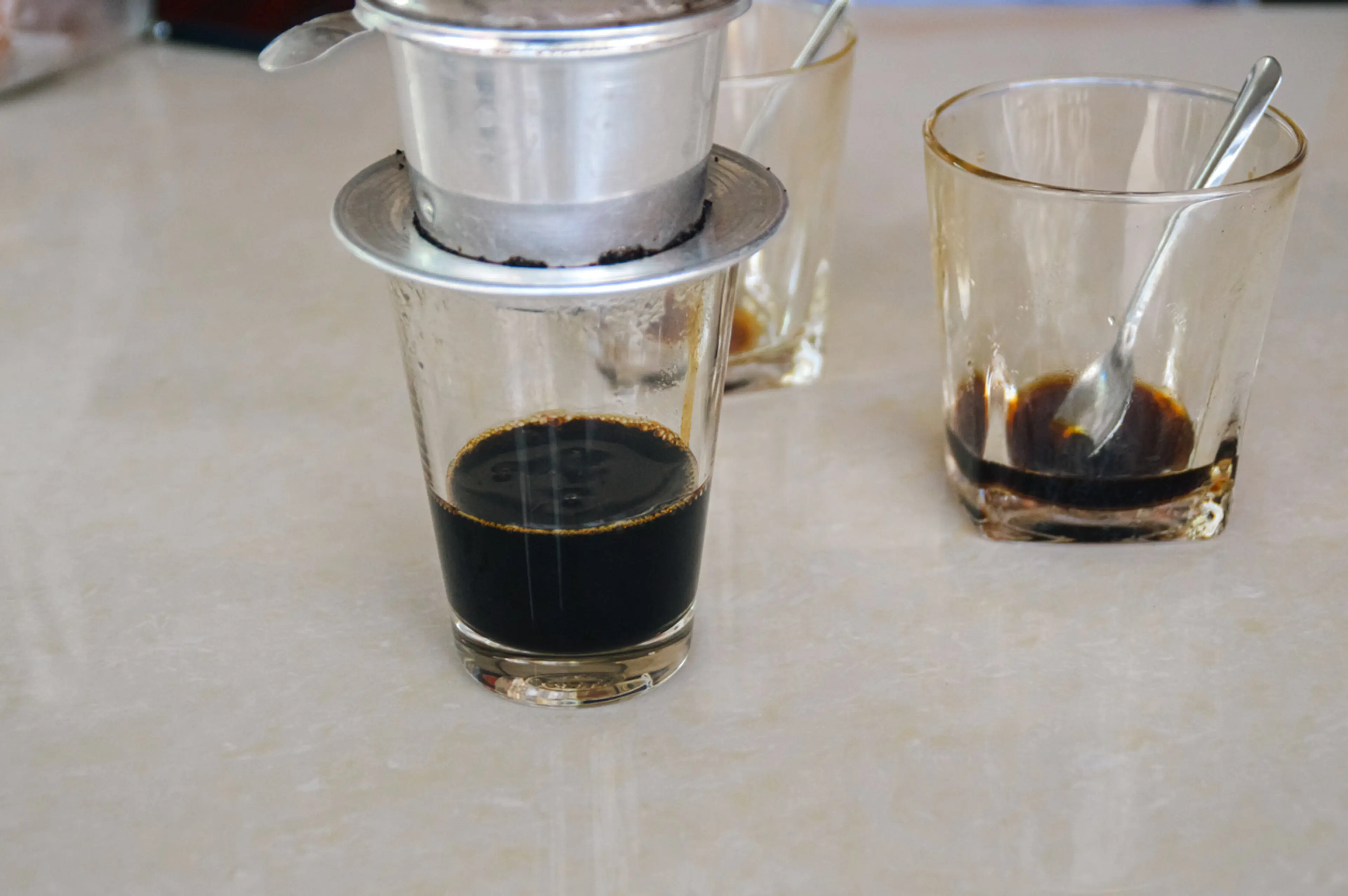
Lao Coffee
Laos is known for its robust coffee production, and Lao Coffee is a must-try. It's often served strong and sweet, with condensed milk.
Best time to visit
The best time to visit Laos as a tourist is during the dry season, which runs from November to March. During this period, the weather is mostly dry and temperatures are moderate, making it ideal for sightseeing and outdoor activities. Additionally, many of the country's most popular festivals, such as the Boun That Luang Festival and the Lao New Year, take place during these months, offering visitors a chance to experience the rich cultural heritage of Laos.
How to get around
Air Travel
Laos has three major international airports: Wattay International Airport in Vientiane, Luang Prabang International Airport in Luang Prabang, and Pakse International Airport in Pakse. Domestic flights are also available and can be a quick way to travel between major cities.
Bus
Buses are a common way to get around in Laos, especially for longer distances. There are several types of buses available, including local buses, VIP buses, and sleeper buses. Local buses are usually crowded and slow, but they are also the cheapest option. VIP buses are more comfortable and faster, but they are also more expensive. Sleeper buses are equipped with beds and are used for overnight trips.
Minivan
Minivans are a popular choice for medium-distance travel. They are faster and more comfortable than local buses, but they can also be more expensive. Minivans usually have air conditioning and they often pick up passengers from their hotels.
Boat
Traveling by boat can be a scenic and enjoyable way to get around in Laos, especially along the Mekong River and its tributaries. There are several types of boats available, including slow boats, speedboats, and luxury cruise boats. Boat travel can be slower than other methods, but it offers a unique perspective on the country.
Tuk-Tuk
Tuk-tuks are a common form of transportation in Laos. They are three-wheeled motorized vehicles that can carry up to four passengers. Tuk-tuks are a convenient way to get around in cities and towns, but they can also be used for short trips to the countryside.
Bicycle
Bicycles are widely available for rent in many parts of Laos. They are a cheap and eco-friendly way to get around, especially in smaller towns and rural areas. Bicycling can be a great way to explore the local scenery at your own pace.
Motorbike
Motorbikes are a popular mode of transportation in Laos. They can be rented in many places, and they offer a fast and flexible way to get around. However, driving a motorbike in Laos can be dangerous due to the country's challenging road conditions and traffic rules.
Car Rental
Renting a car is another option for getting around in Laos. This can provide more comfort and flexibility than public transportation, but it is also more expensive. In addition, driving in Laos can be challenging due to the country's road conditions and traffic rules.
Ridesharing
Ridesharing services are not widely available in Laos. However, some local companies offer similar services, especially in larger cities like Vientiane. These services can be a convenient and affordable way to get around, but they may not be available in all areas.
Important information
Currency₭ LAK
Time zoneUTC+7
Driving sideRight
Emergency phoneLocal numbers only
Drinking waterOpt for bottled water
Power sockets
Voltage230 V
Things to know about Laos as a first time visitor
1
Laos is a landlocked country in Southeast Asia, bordered by Myanmar, China, Vietnam, Cambodia, and Thailand.
2
The official language is Lao, but English is commonly spoken in tourist areas.
3
The official currency is the Lao Kip (LAK). Credit cards are accepted in major cities and tourist areas, but it's a good idea to carry cash in more remote areas.
4
Laos has a tropical monsoon climate. The rainy season is from May to October, while the dry season is from November to April. Temperatures can range from 59°F to 95°F (15°C to 35°C).
5
Laos is generally safe for tourists, but like anywhere, it's important to stay vigilant and aware of your surroundings.
6
Laos is a predominantly Buddhist country, and it's important to respect local customs and traditions. Dress modestly, especially when visiting temples.
7
The food in Laos is a blend of Thai, Vietnamese, and Chinese influences. Sticky rice is a staple, and the national dish is 'larb', a spicy meat salad.
8
Tap water is not safe to drink in Laos. Always drink bottled water and avoid ice in drinks.
9
Laos operates on Indochina Time, which is 7 hours ahead of Greenwich Mean Time (GMT+7).
10
The electrical supply in Laos is 230 volts and 50Hz. The power plugs and sockets are of type A, B, C, E, and F.
11
Healthcare facilities in Laos are limited, especially outside major cities. It's recommended to have comprehensive travel insurance that includes medical evacuation.
12
Laos is a conservative country. Public displays of affection are considered disrespectful, and it's illegal for foreigners to have sexual relations with Lao citizens unless they are married.
13
The Lao government strictly controls the media. Criticism of the government, the communist party, or the king is illegal and could result in deportation or imprisonment.
14
Laos has a zero-tolerance policy towards drugs. Penalties for drug offences, including possession, are severe and can include the death penalty.
15
It's customary to remove your shoes before entering a Lao home or a temple.
16
Tipping is not customary in Laos, but it is appreciated, especially in the service industry.
17
Public transportation in Laos is limited. The most common forms of transportation are tuk-tuks, taxis, and bicycles.
18
Laos has a rich cultural heritage with many traditional festivals throughout the year. The most famous is the Water Festival, which marks the Lao New Year in April.
19
Laos has a slower pace of life compared to its neighbors. The locals have a saying, 'PDR', which stands for 'Please Don't Rush'.
20
Laos is home to a diverse range of wildlife, including elephants, tigers, and bears. However, it's important to only support ethical wildlife tourism and avoid attractions that exploit animals.
Basic Lao to know as a first time visitor
English phrase | Native phrase | Pronunciation | When to use it |
|---|---|---|---|
Hello | ສະບາຍດີ | sa bai dee | Greeting someone |
Goodbye | ລາກການ | laa gon | Saying goodbye |
Thank you | ຂອບໃຈ | khop jai | Expressing gratitude |
Yes | ແມ່ນ | mehn | Agreeing with someone |
No | ບໍ່ | bor | Disagreeing with someone |
Excuse me | ຂໍໂທດ | kho thot | Getting someone's attention |
I'm sorry | ຂໍອະໄພ | kho o-pai | Apologizing |
Do you speak English? | ທ່ານເວົ້າພາສາອັງກິດໄດ້ບໍ່ | thaan wao pa-sa ang-kid dai bor | Asking if someone speaks English |
I don't understand | ຂ້ອຍບໍ່ເຫັນເຂົ້າ | khoi bor hen khao | When you don't understand what's being said |
Help! | ຊ່ວຍເຫຼືອ! | suay leua! | In case of emergency |
Where is the bathroom? | ຫ້ອງນໍ້າຢູ່ບ່ອນໃດ | hong nam yuu bon dai | Asking for directions |
How much does this cost? | ນີ້ລາຄາເທົ່າໃດ | nee laa kha thao dai | When shopping |
Can I have the menu, please? | ຂ້ອຍສາມາດໄດ້ເບິ່ງເມນູບໍ່ | khoi sa-mat dai beng menu bor | At a restaurant |
Water | ນ້ໍ້ | nam | Ordering a drink |
Beer | ເບຍ | bia | Ordering a drink |
Delicious | ນົມ | nyam | Complimenting food |
I'm vegetarian | ຂ້ອຍກິນສຸດ | khoi gin soot | At a restaurant |
What's your name? | ຊື່ຂອງທ່ານແມ່ນຫຍັງ | sue khong thaan men nyang | Getting to know someone |
My name is... | ຊື່ຂ້ອຍແມ່ນ... | sue khoi men... | Introducing yourself |
I'm from... | ຂ້ອຍມາຈາກ... | khoi ma jaak... | Introducing yourself |
Packing List
Clothing
Lightweight clothing
Underwear
Socks
Swimwear
Comfortable walking shoes
Sandals
Hat or cap
Sunglasses
Rain jacket
Light sweater or jacket for cooler evenings
Toiletries
Travel-sized shampoo and conditioner
Body wash or soap
Toothbrush and toothpaste
Deodorant
Razor and shaving cream
Sunscreen
Insect repellent
First-aid kit
Prescription medications
Hand sanitizer
Travel documents and essentials
Passport
Visa if required
Driver's license
Travel insurance documents
Hotel and transportation reservation confirmations
Emergency contacts and addresses
Local currency
Credit and debit cards
Electronics and gadgets
Smartphone
Charger for smartphone
Universal travel adapter
Camera
Charger for camera
Headphones or earbuds
Portable power bank
Miscellaneous items
Travel pillow
Earplugs and eye mask
Snacks
Water bottle
Books or e-reader for entertainment
Travel guide or map
Notebook and pen
Small backpack for day trips
Travel-sized laundry detergent
Weather Conditions
Laos experiences a tropical monsoon climate, which is characterized by a wet and a dry season. The dry season runs from November to April, and the wet season from May to October. If you're planning to visit Laos, it's essential to consider these seasons. The dry season is the most popular time for tourists due to the lower rainfall and milder temperatures, which typically range from 68°F to 86°F (20°C to 30°C). However, it can get quite cool in the evenings, especially in the northern regions, so it's advisable to pack some warm clothing. The wet season brings heavy rainfall, particularly in the afternoons and evenings. The temperatures during this season can range from 77°F to 95°F (25°C to 35°C). Despite the rain, this season can be a great time to visit as the countryside is lush and green, and there are fewer tourists. However, some rural roads may be impassable due to flooding, so it's important to check the local conditions and plan your travel accordingly. Regardless of when you visit, it's a good idea to pack lightweight, breathable clothing due to the high humidity. A waterproof jacket or umbrella is also a must, especially if you're visiting during the wet season. Remember to stay hydrated and protect yourself from the sun, as the UV index can be high throughout the year. Consider bringing a reusable water bottle and plenty of sunscreen. Lastly, keep an eye on the local weather forecast during your visit, as conditions can change quickly, especially during the wet season.
| Month | Hi / Lo (°C) | Weather Overview |
|---|---|---|
January | 27° / 14° | January is the coldest month in Laos, but still quite warm by most standards. It's a great time to visit if you prefer cooler temperatures. |
February | 29° / 15° | February sees a slight increase in temperature, but it's still relatively cool. It's a good time to visit for outdoor activities. |
March | 34° / 19° | March marks the beginning of the hot season in Laos. It's a good time to visit if you enjoy hot, sunny weather. |
April | 37° / 22° | April is the hottest month in Laos, with temperatures often exceeding 35°C. It's a good time to visit if you enjoy hot, sunny weather, but be prepared for the heat. |
May | 34° / 23° | May sees the beginning of the rainy season in Laos. It's a good time to visit if you don't mind a bit of rain and enjoy lush, green landscapes. |
June | 33° / 24° | June is in the middle of the rainy season in Laos. It's a good time to visit if you don't mind a bit of rain and enjoy lush, green landscapes. |
July | 33° / 24° | July is also in the middle of the rainy season in Laos. It's a good time to visit if you don't mind a bit of rain and enjoy lush, green landscapes. |
August | 32° / 24° | August is towards the end of the rainy season in Laos. It's a good time to visit if you don't mind a bit of rain and enjoy lush, green landscapes. |
September | 32° / 23° | September marks the end of the rainy season in Laos. It's a good time to visit if you prefer cooler temperatures and less rain. |
October | 31° / 21° | October is a great time to visit Laos, with cooler temperatures and less rain. The landscapes are still lush and green from the rainy season. |
November | 28° / 18° | November is a great time to visit Laos, with cooler temperatures and less rain. The landscapes are still lush and green from the rainy season. |
December | 26° / 15° | December is a great time to visit Laos, with cooler temperatures and less rain. The landscapes are still lush and green from the rainy season. |
Did you know?
Places near by Laos

Golden Triangle Park
A region where the borders of Thailand, Laos, and Myanmar meet at the confluence of the Ruak and Mekong Rivers.

Phu Chi Fa Forest Park
A national forest park known for its beautiful sunrise views and cool climate.
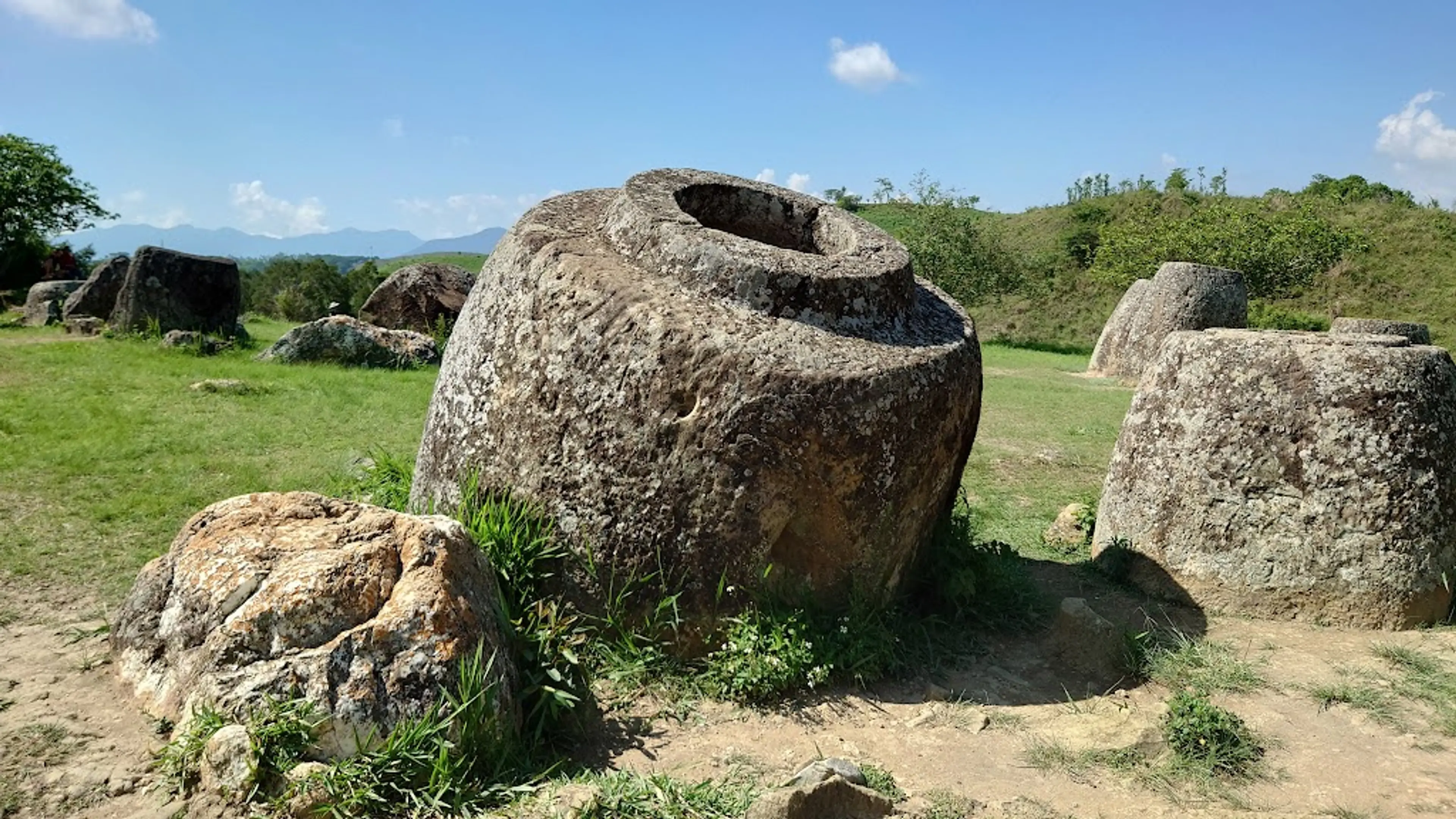
Plain of Jars
A megalithic archaeological landscape in Laos.
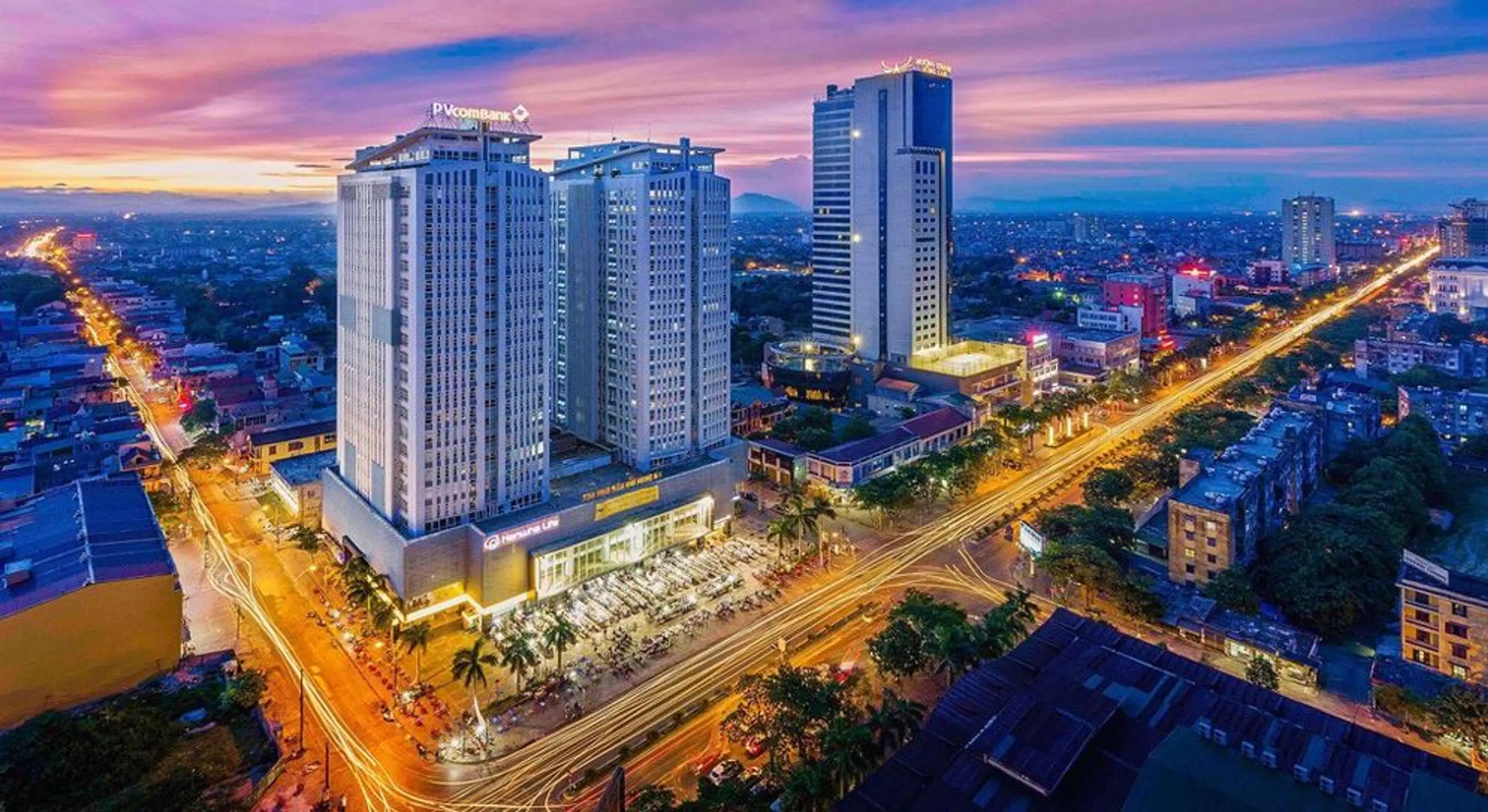
Vinh City
A city in Vietnam known for its beautiful beaches and historical sites.
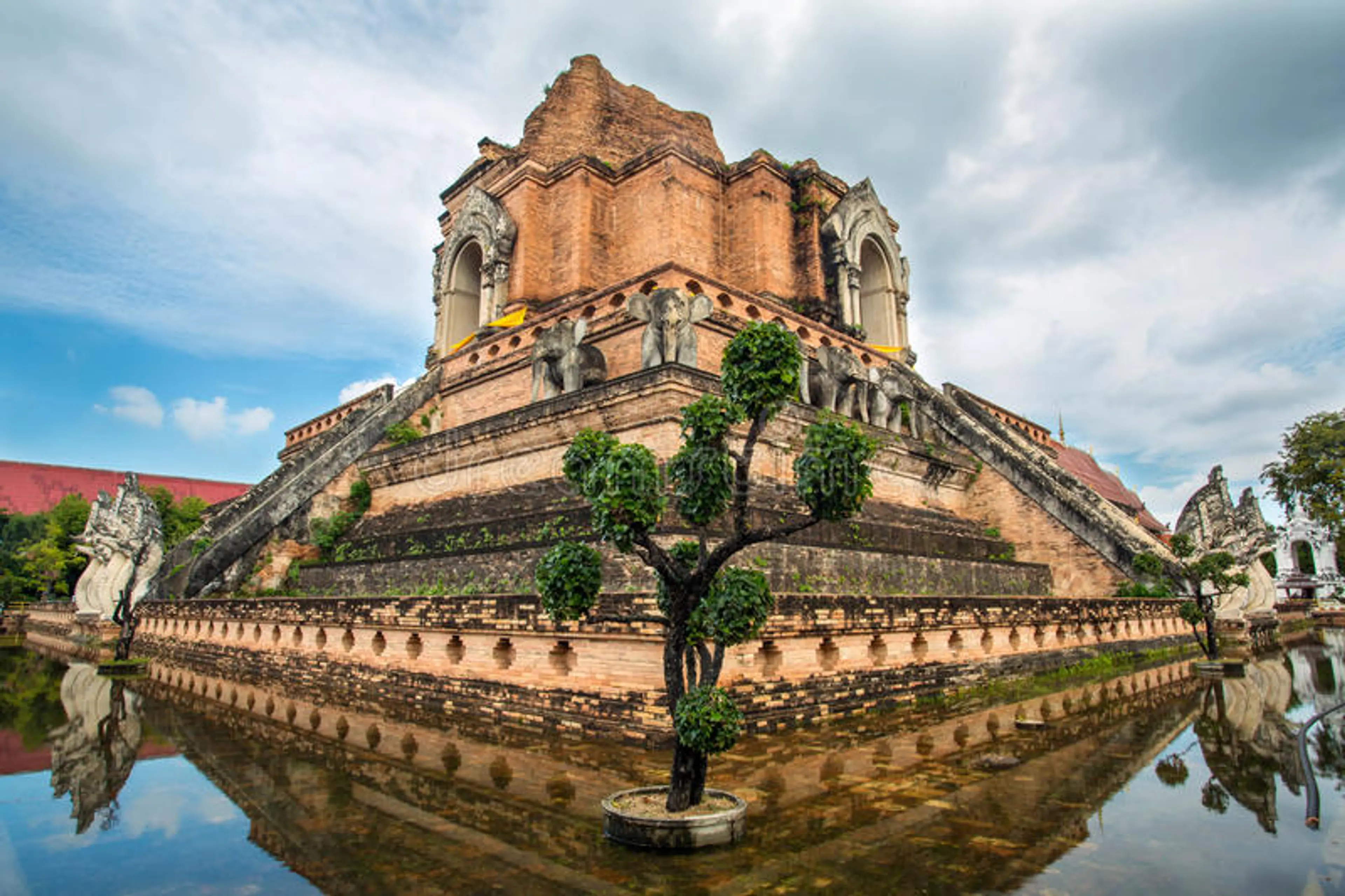
Chiang Mai
A city in mountainous northern Thailand known for its temples and night bazaar.
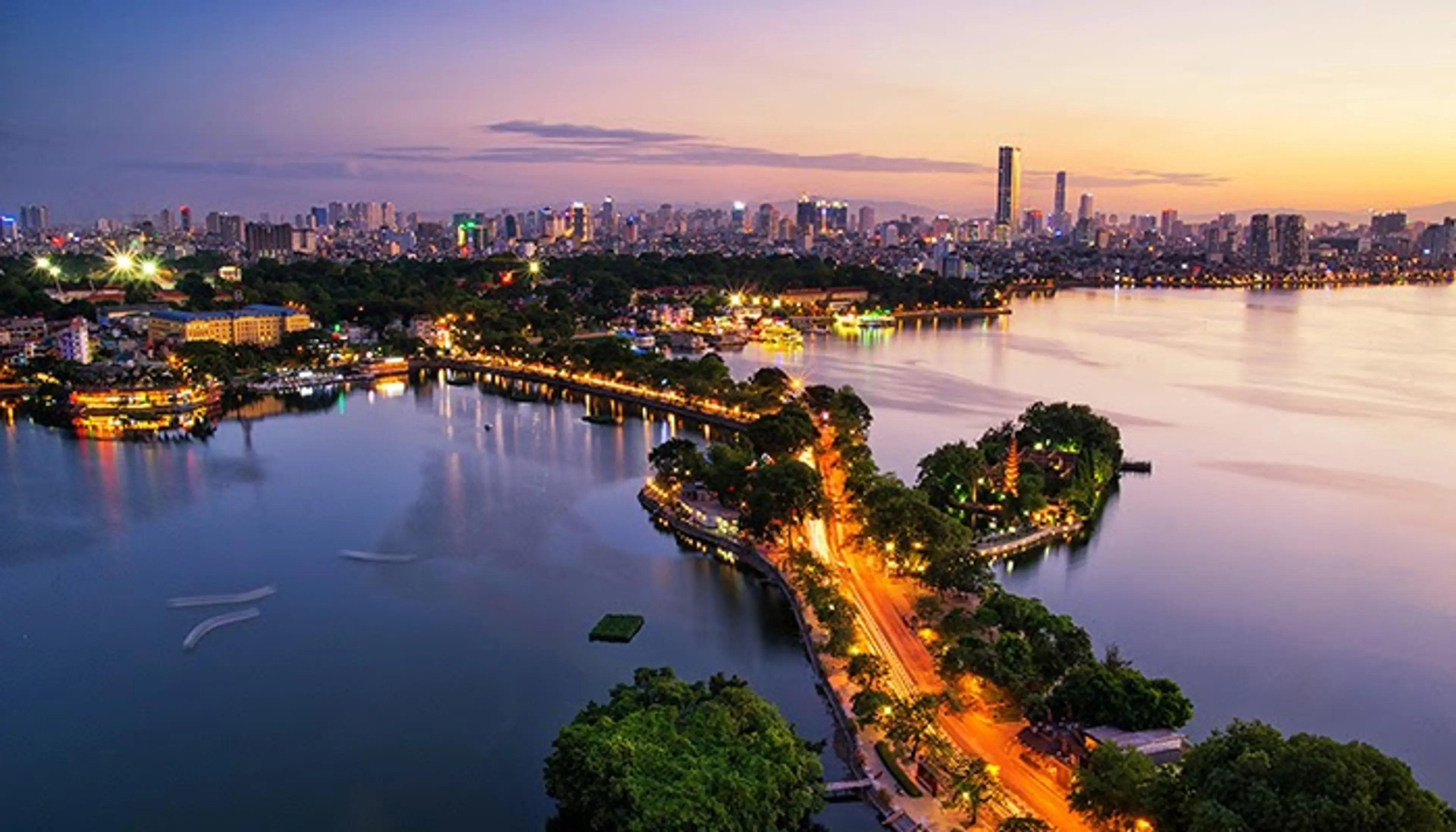
Hanoi
The capital of Vietnam, known for its centuries-old architecture and rich culture.

Bangkok
The capital of Thailand, known for its vibrant street life and cultural landmarks.
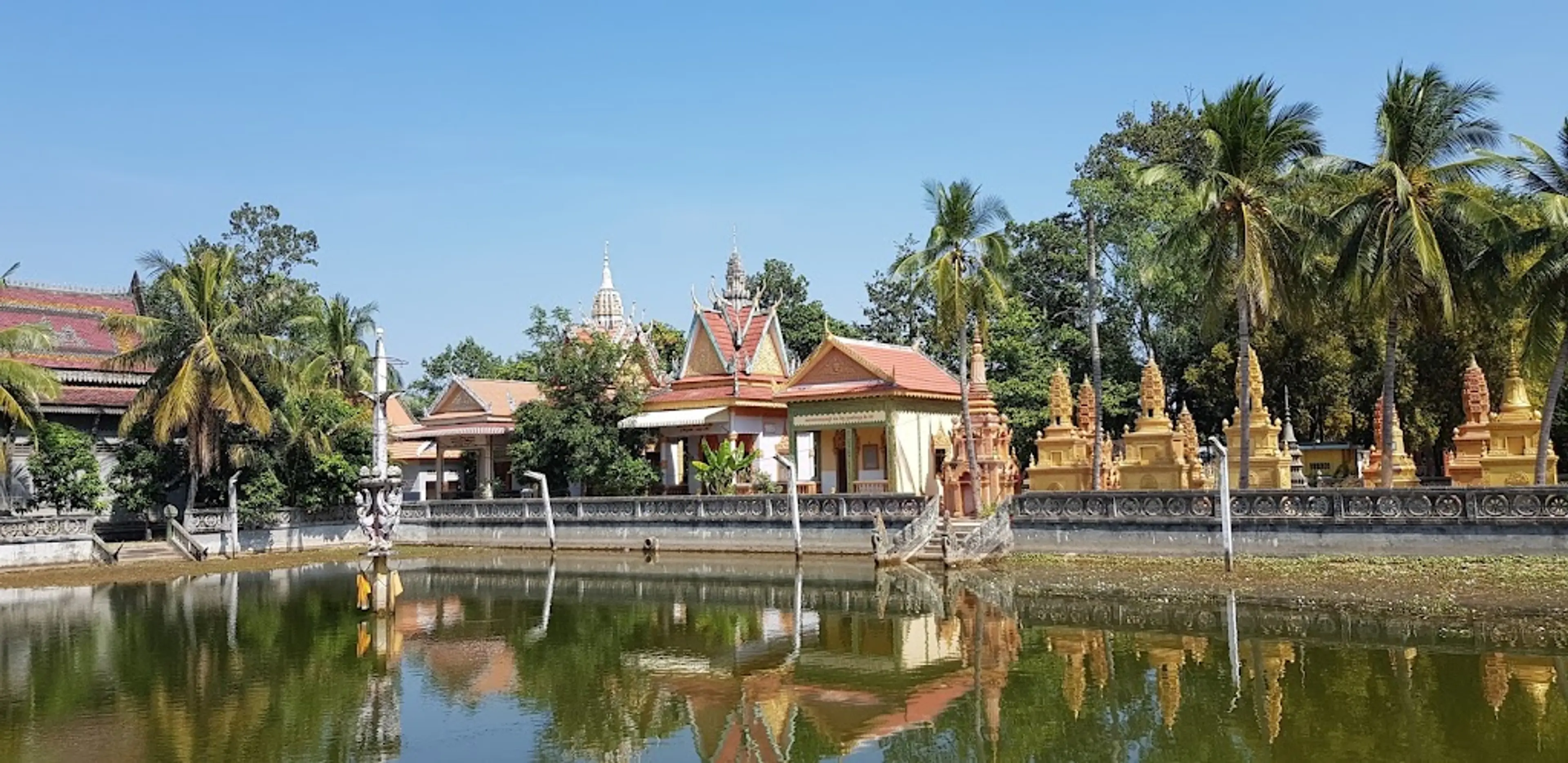
Siem Reap
A resort town in northwestern Cambodia, gateway to the ruins of Angkor.
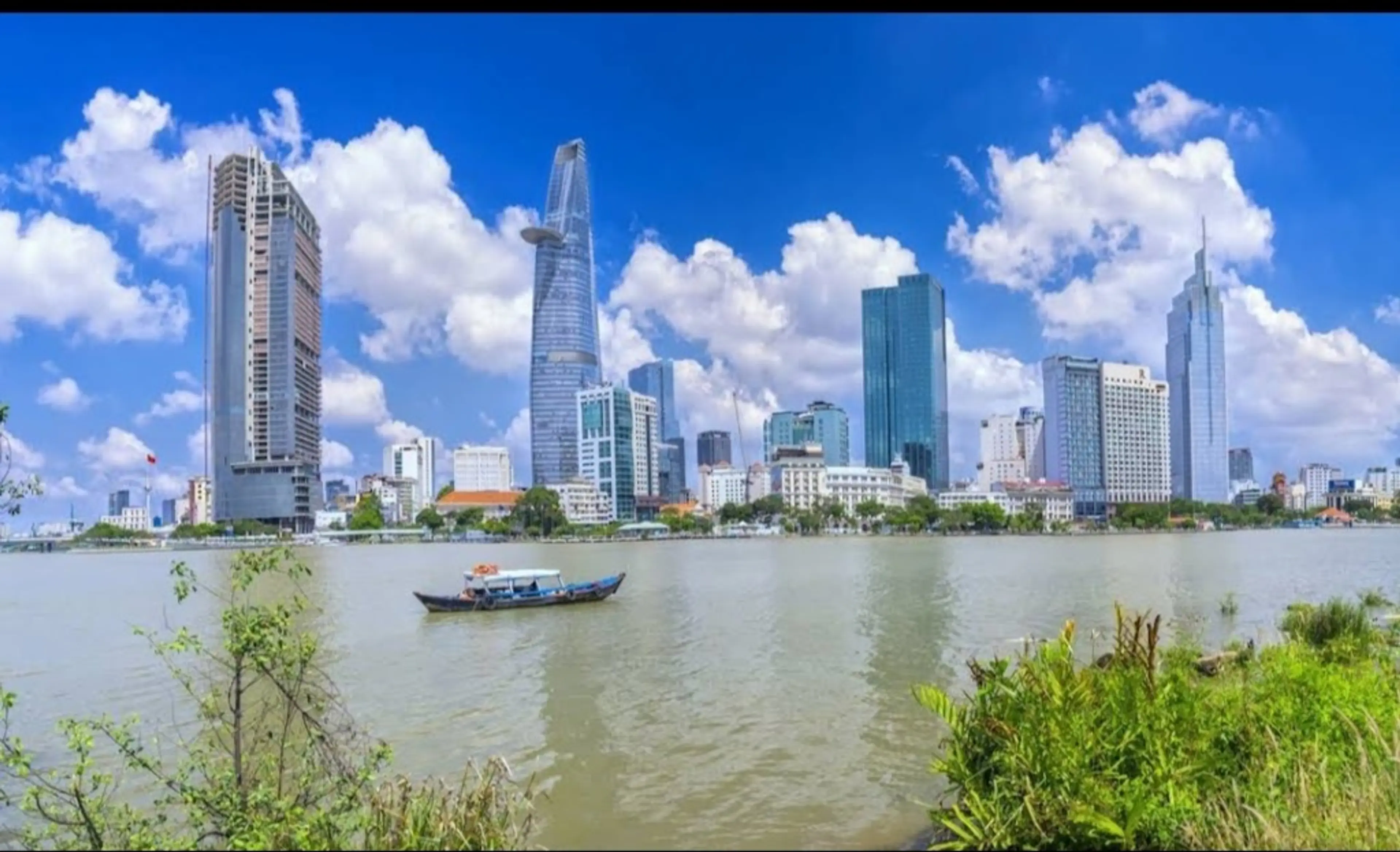
Ho Chi Minh City
The largest city in Vietnam, known for its French colonial landmarks.

Kuala Lumpur
The capital of Malaysia, known for its skyscrapers, colonial architecture, and shopping districts.